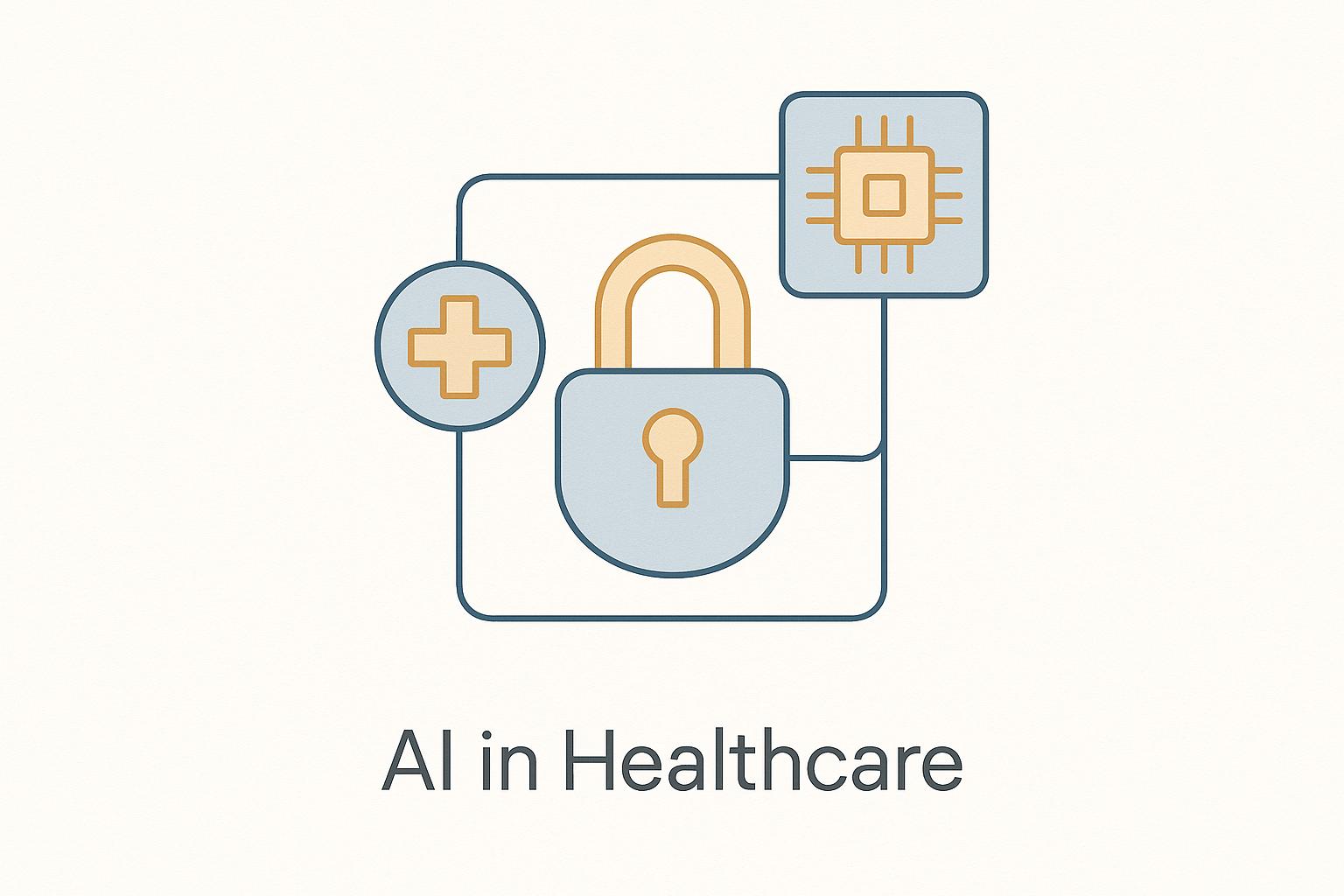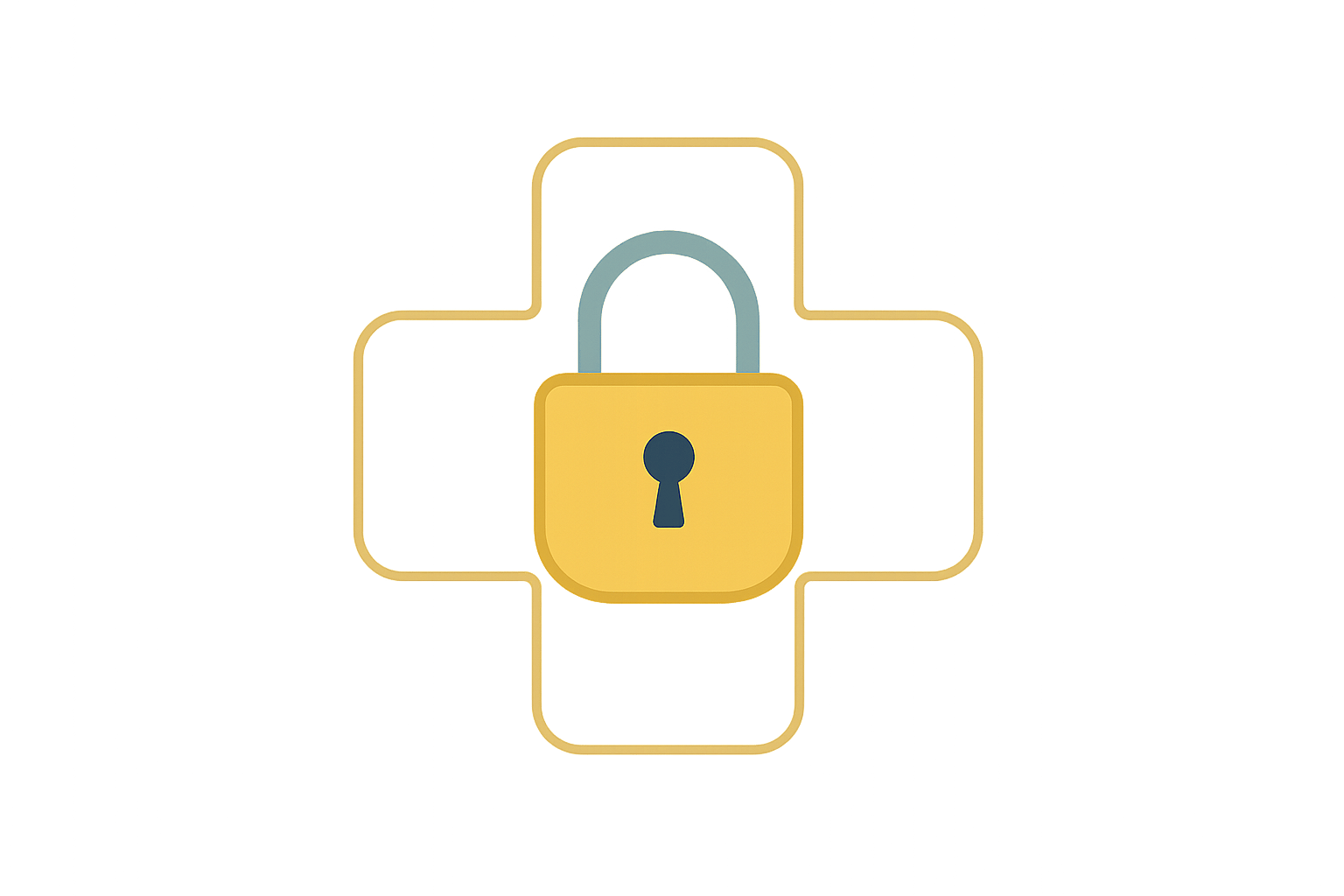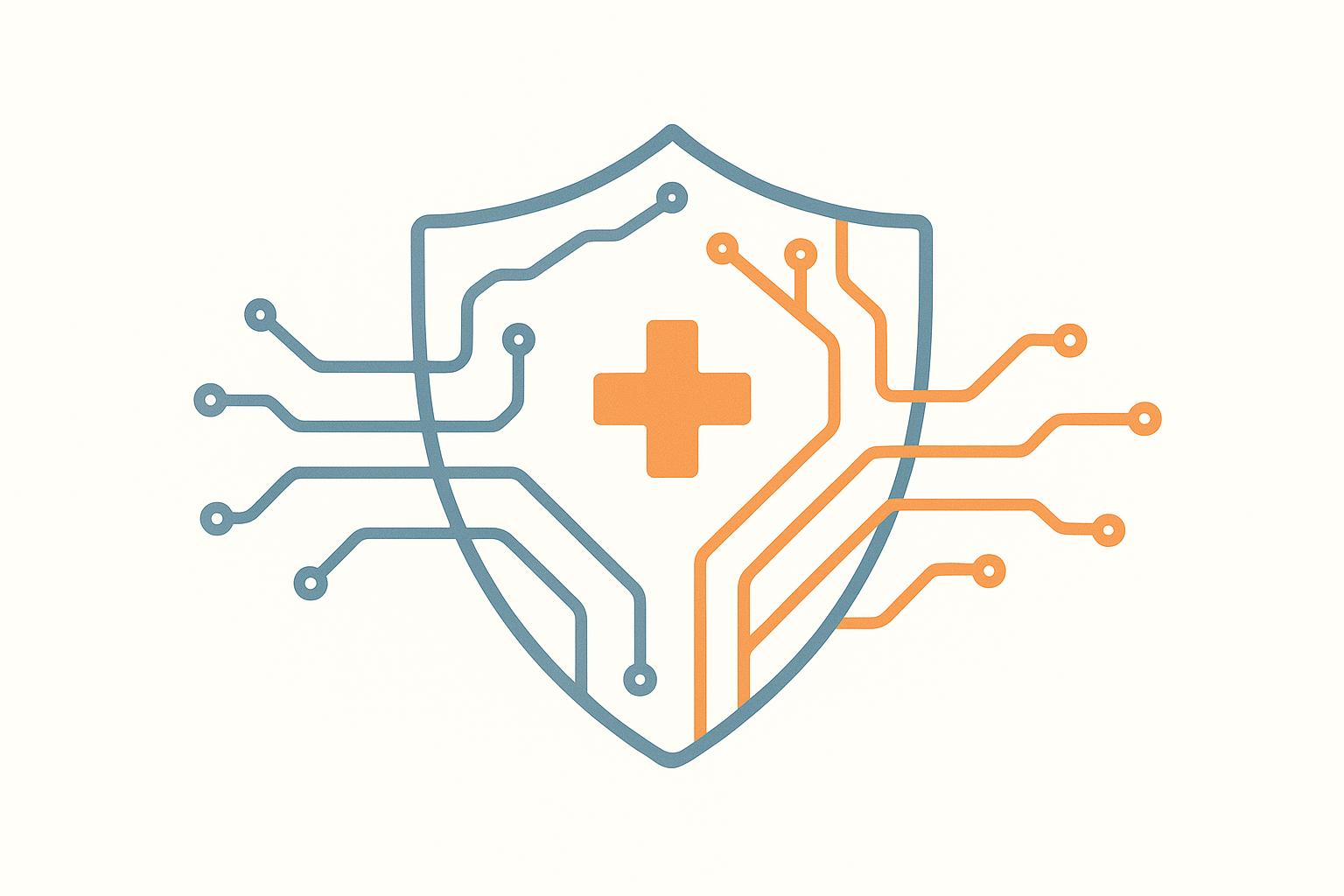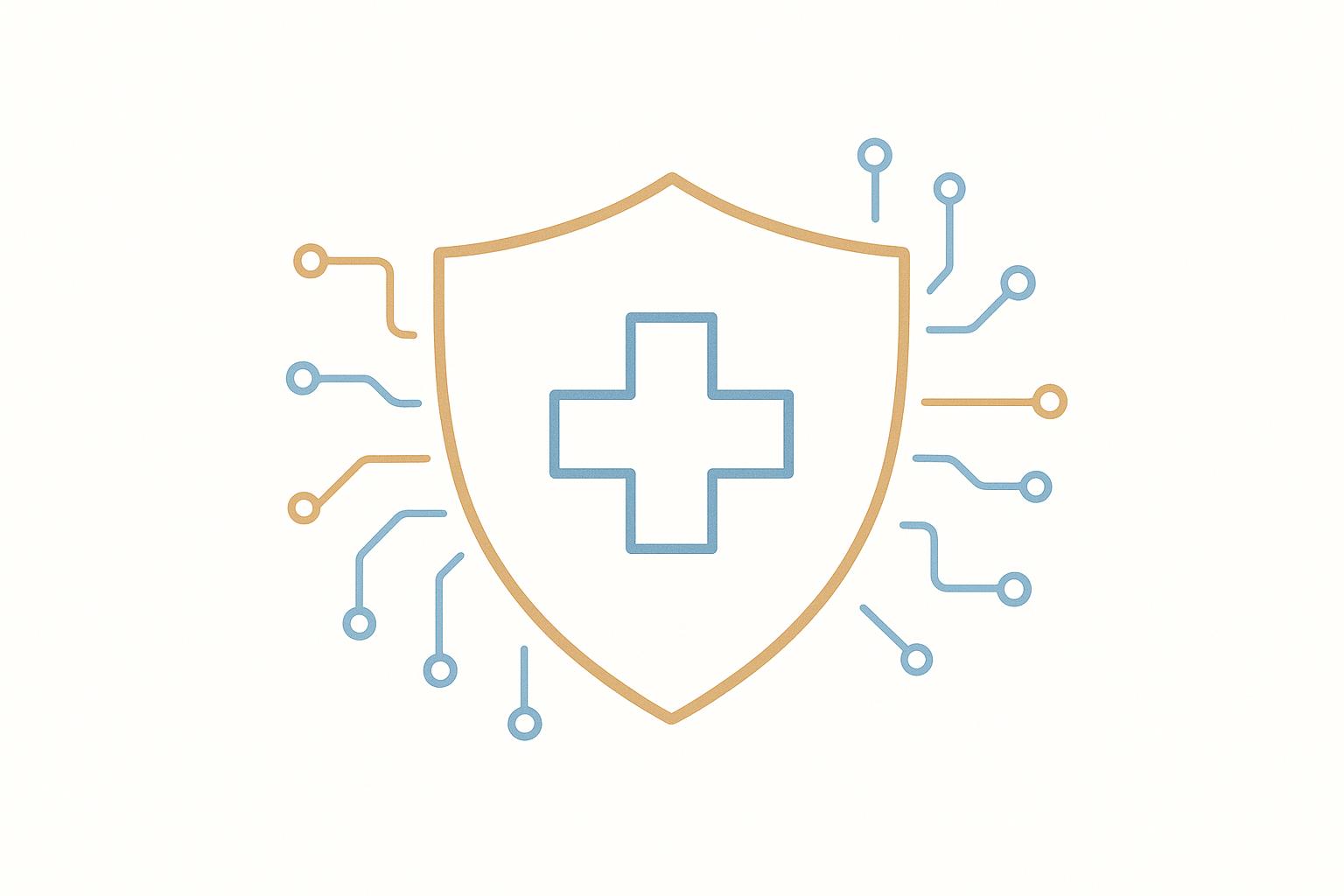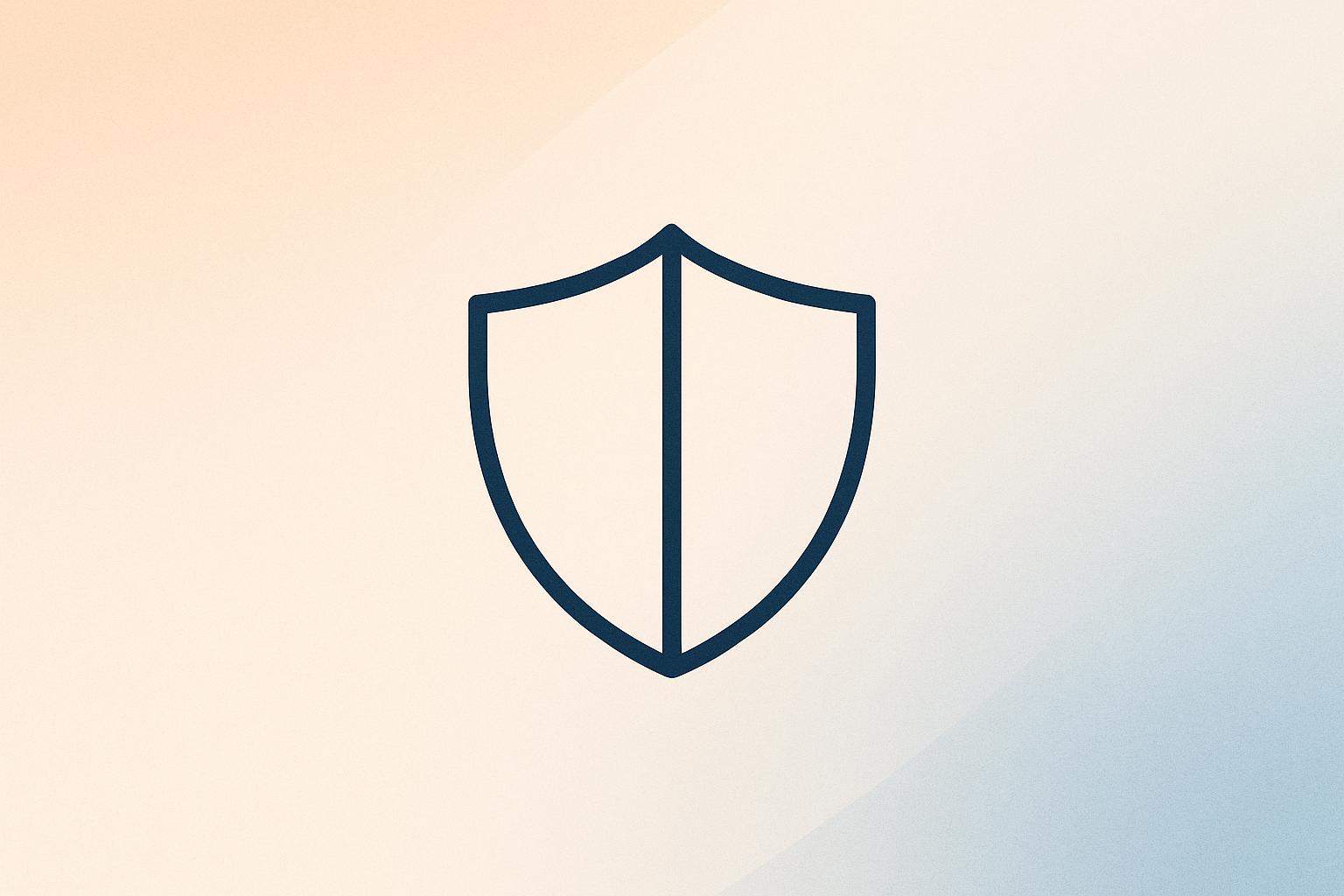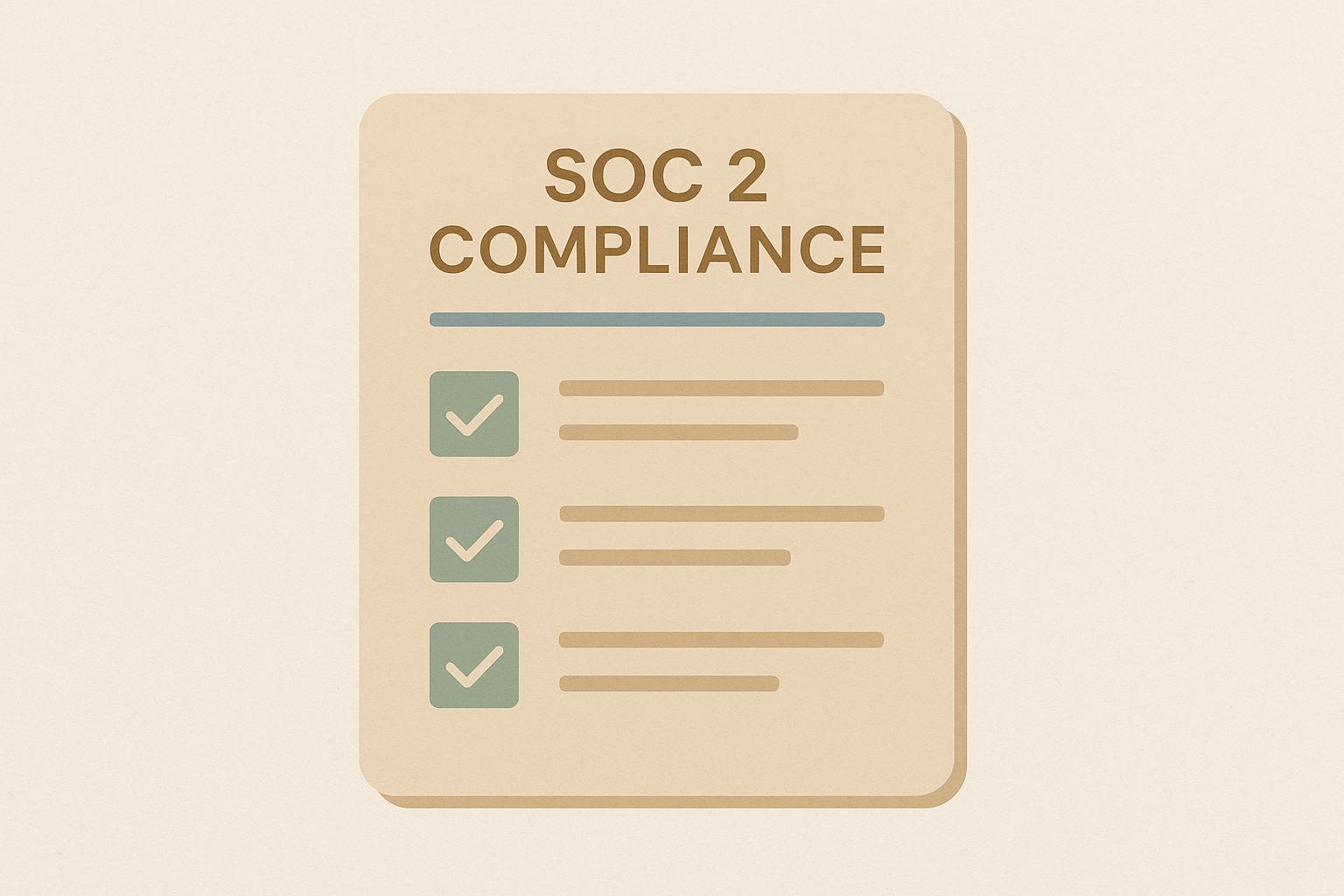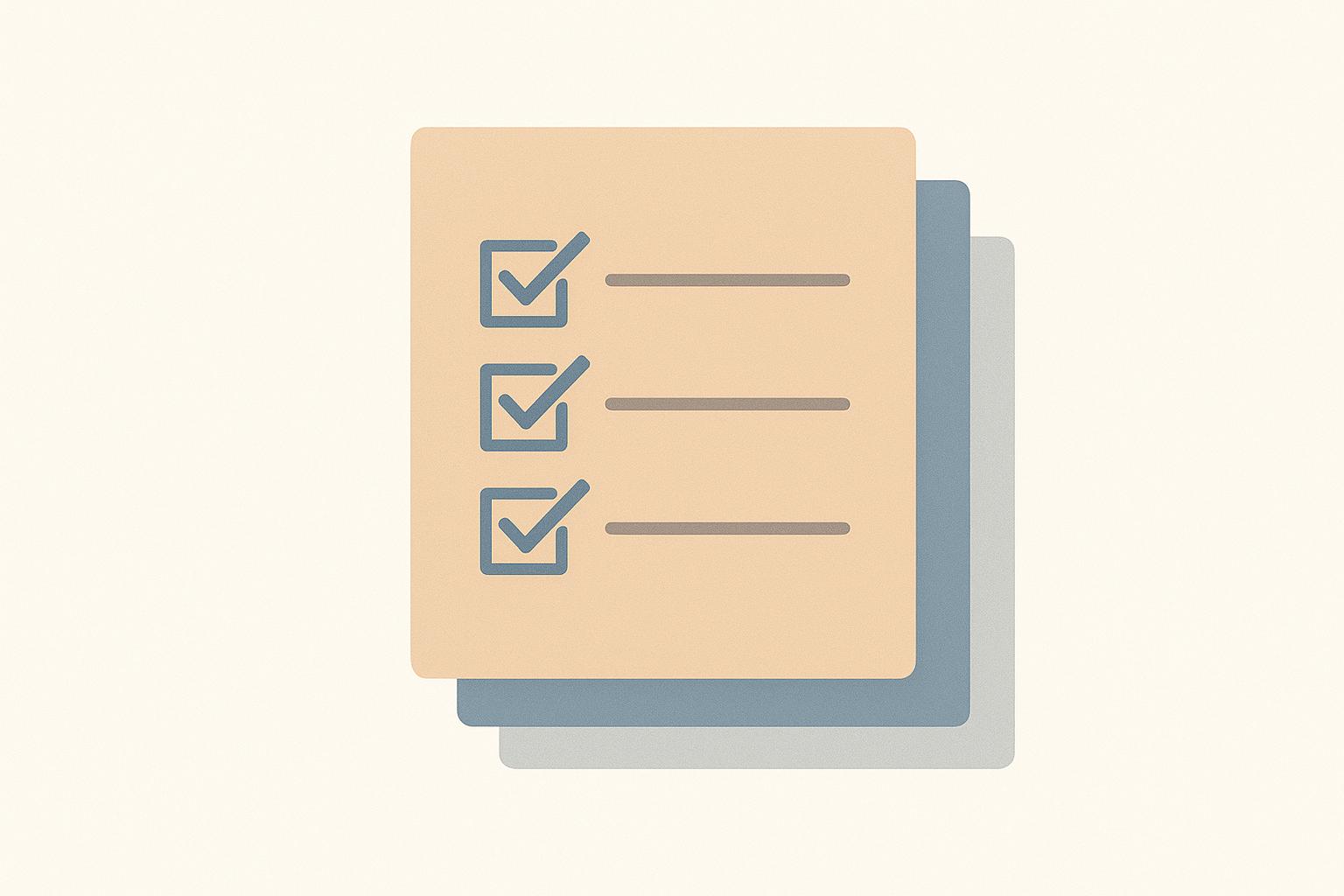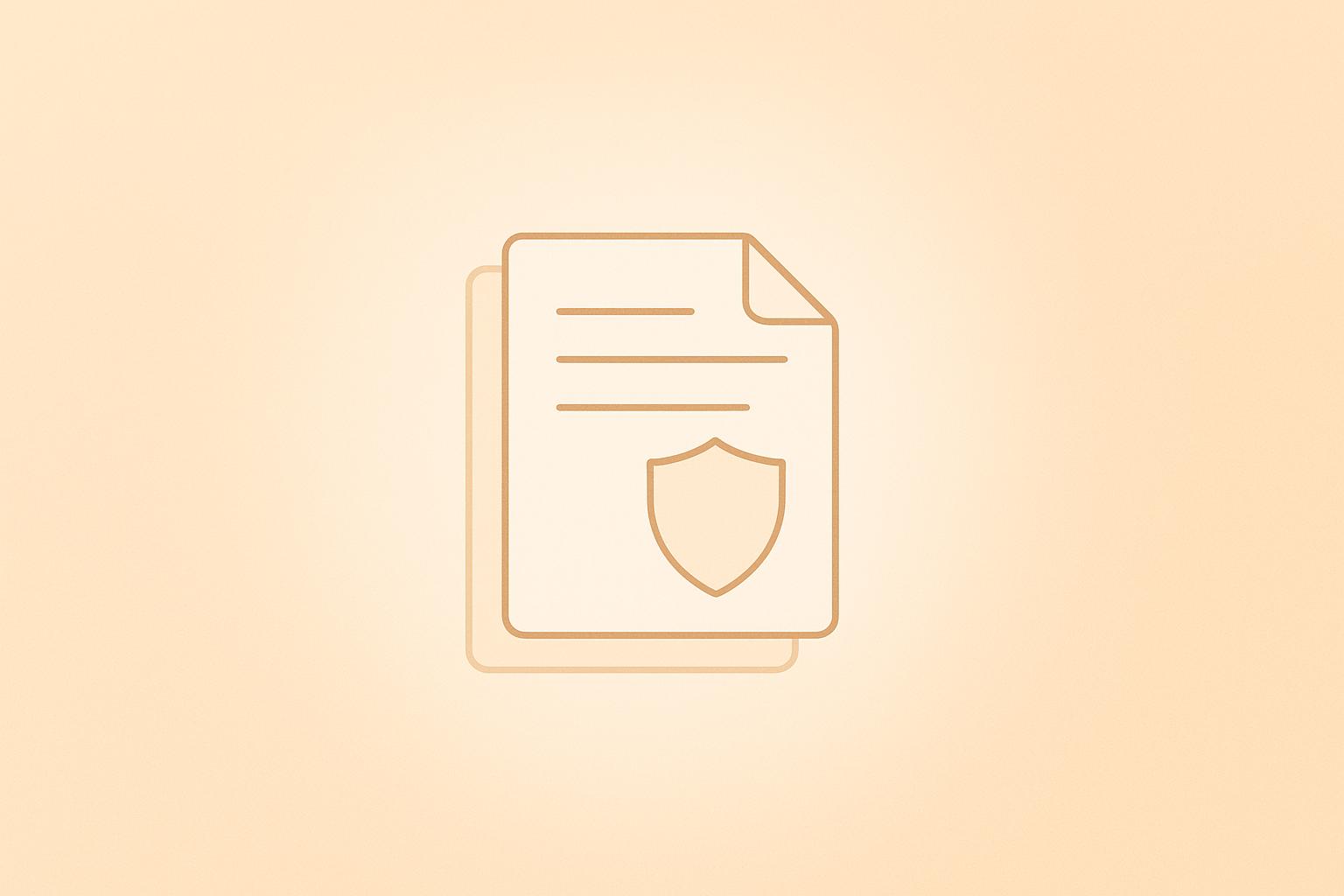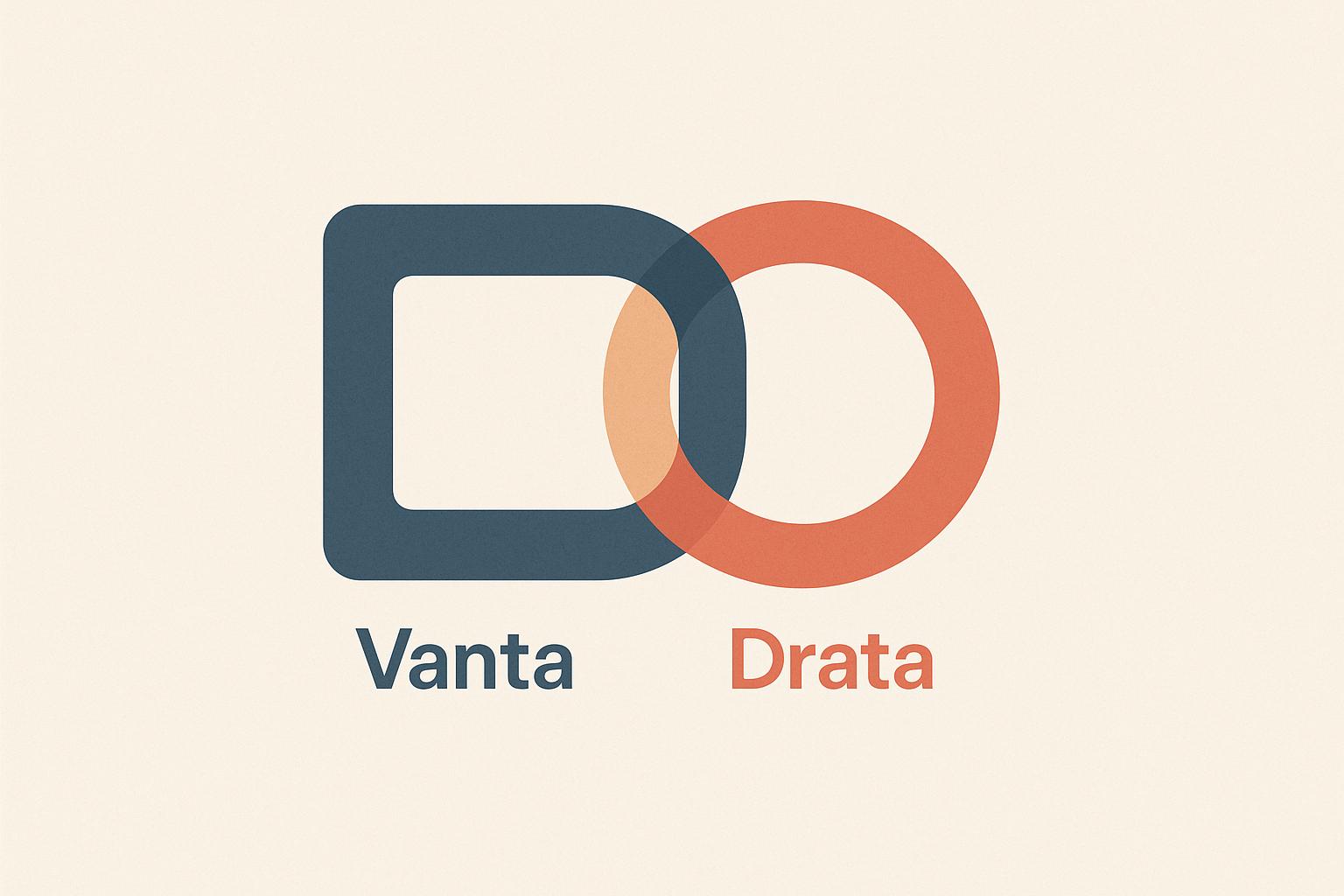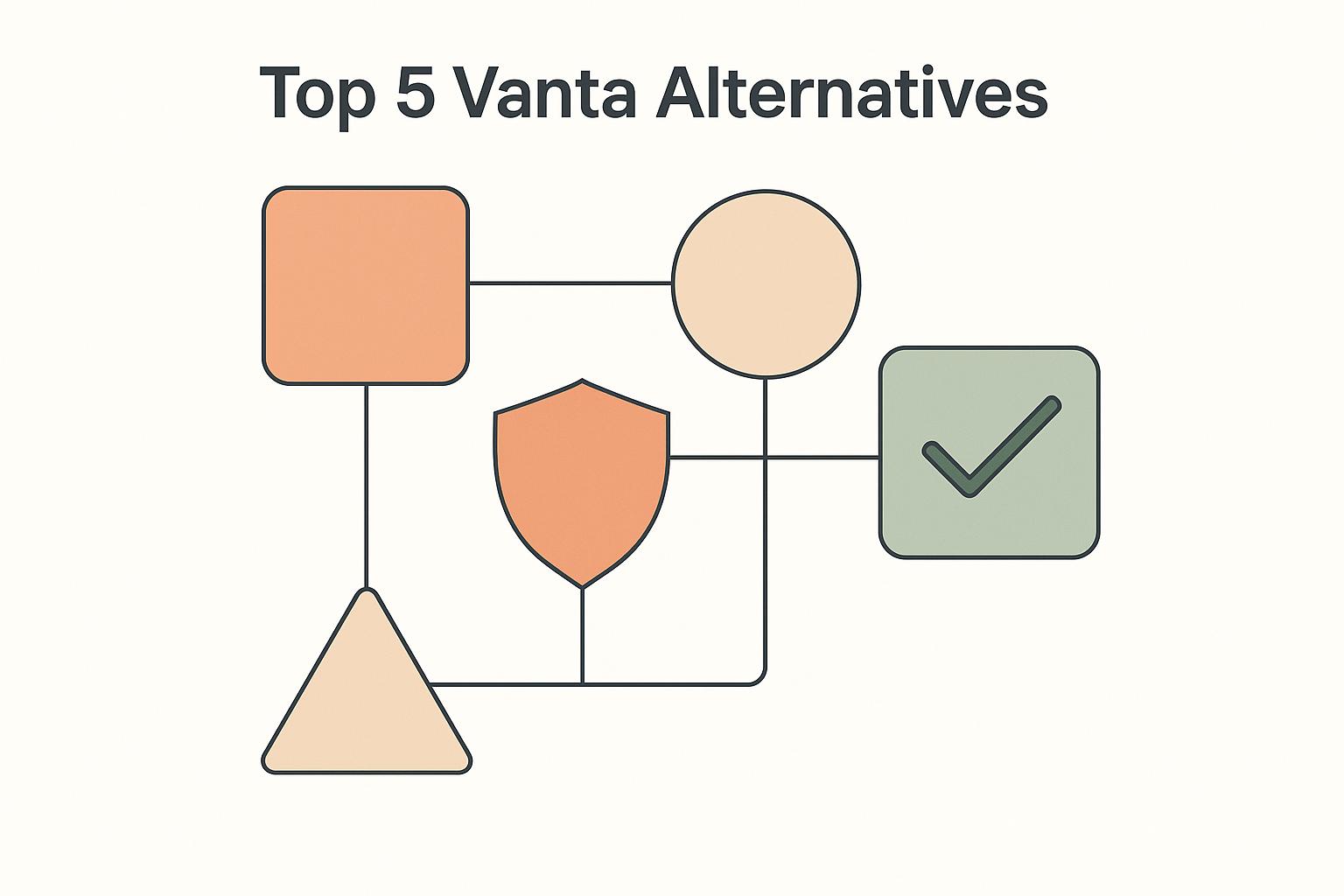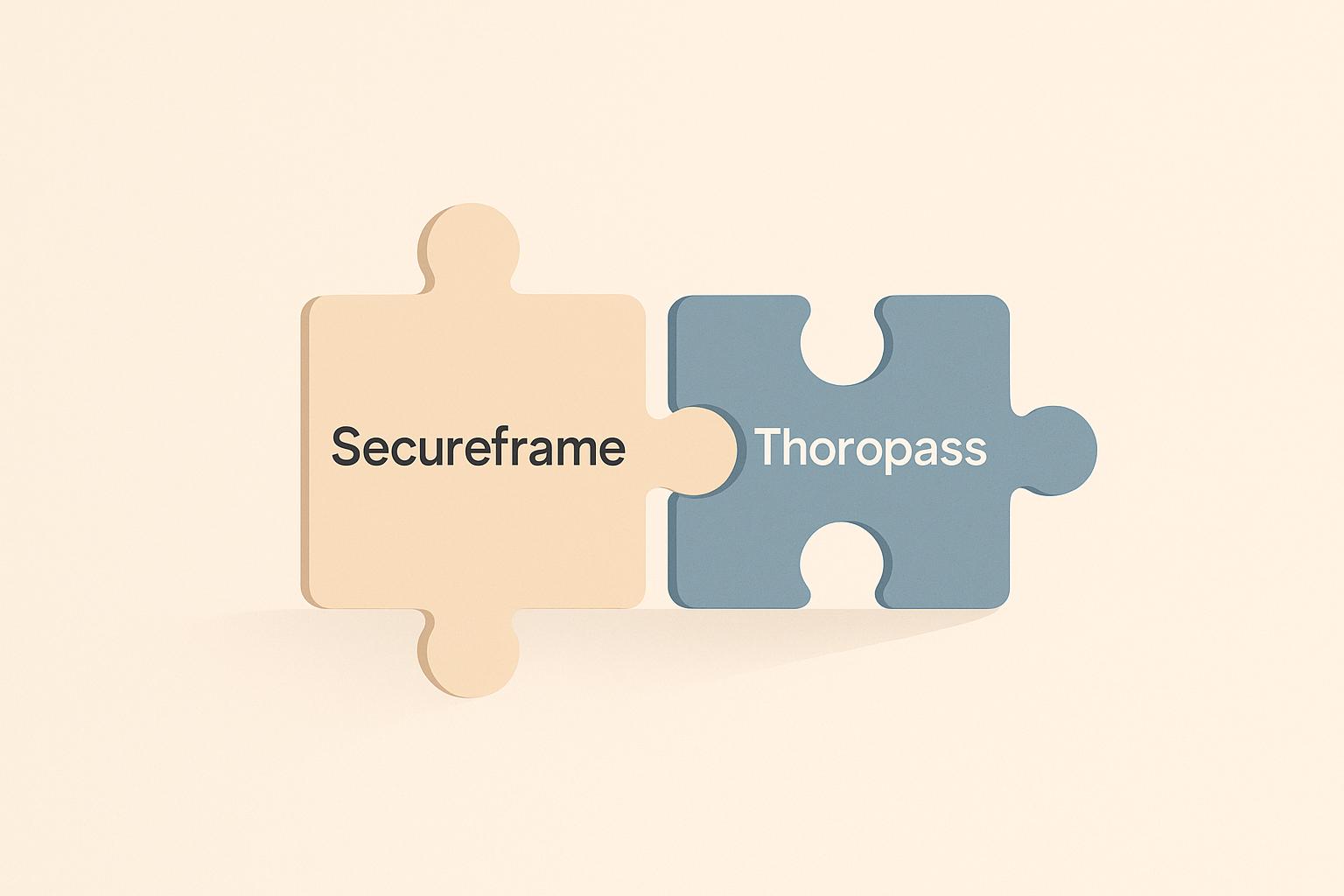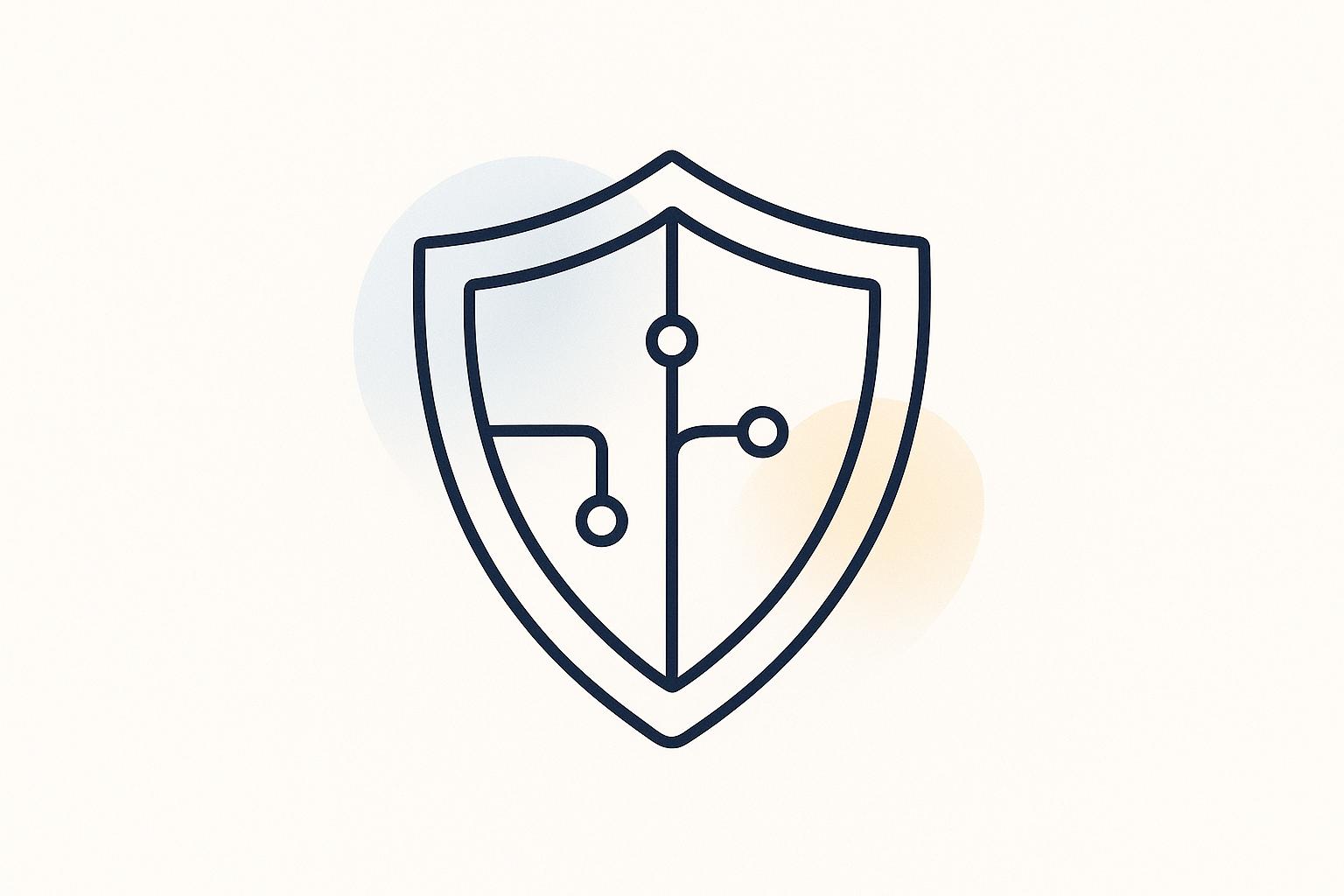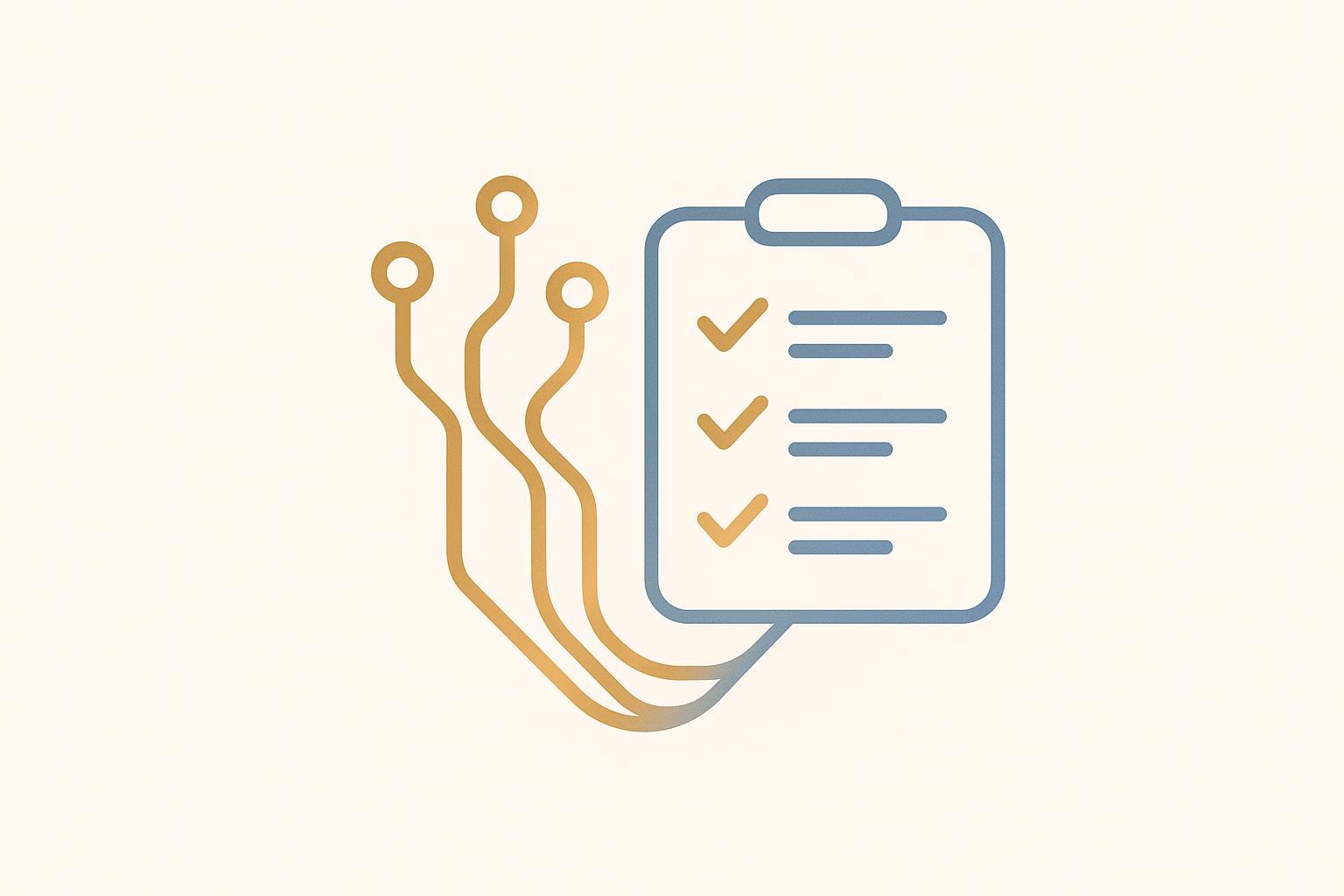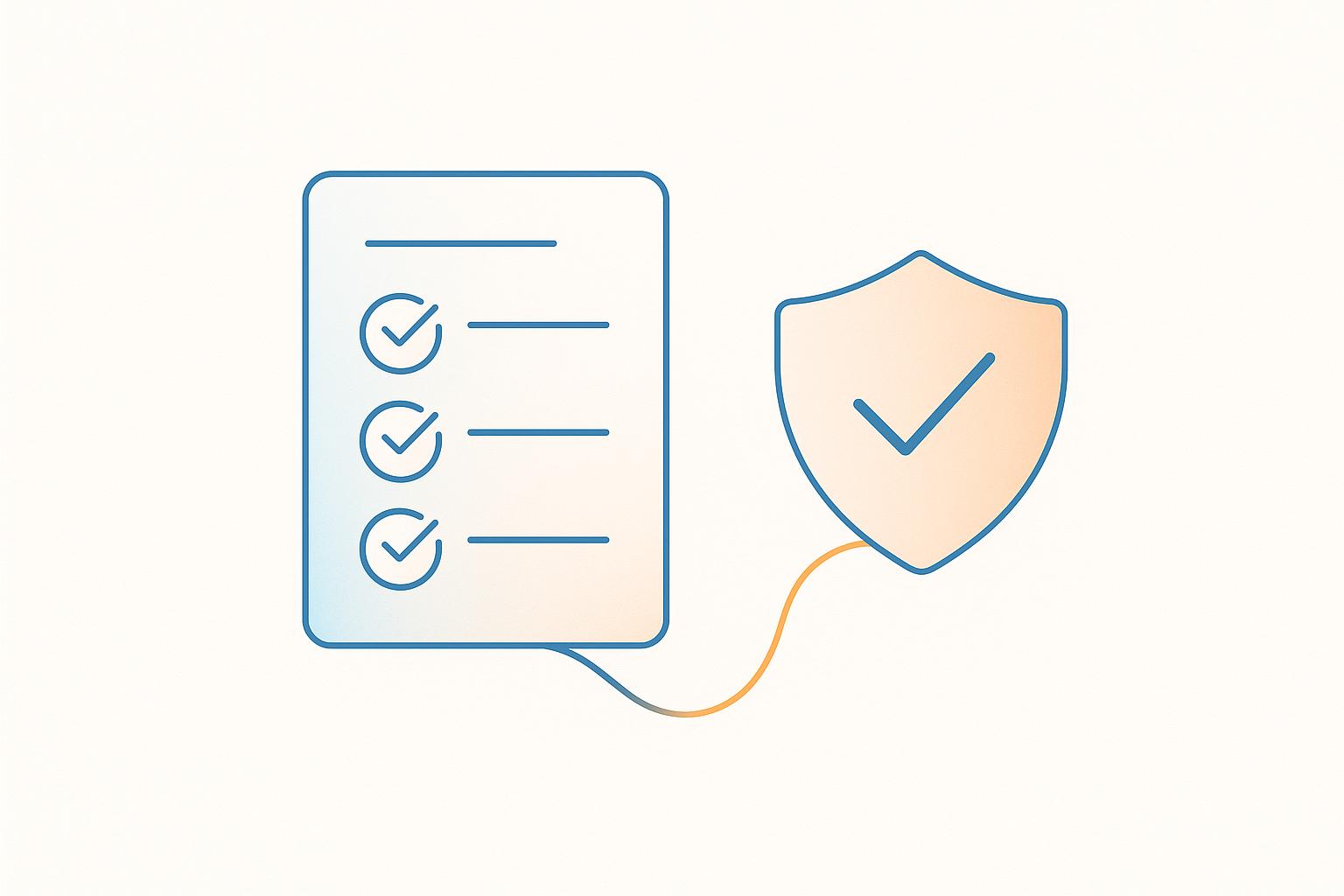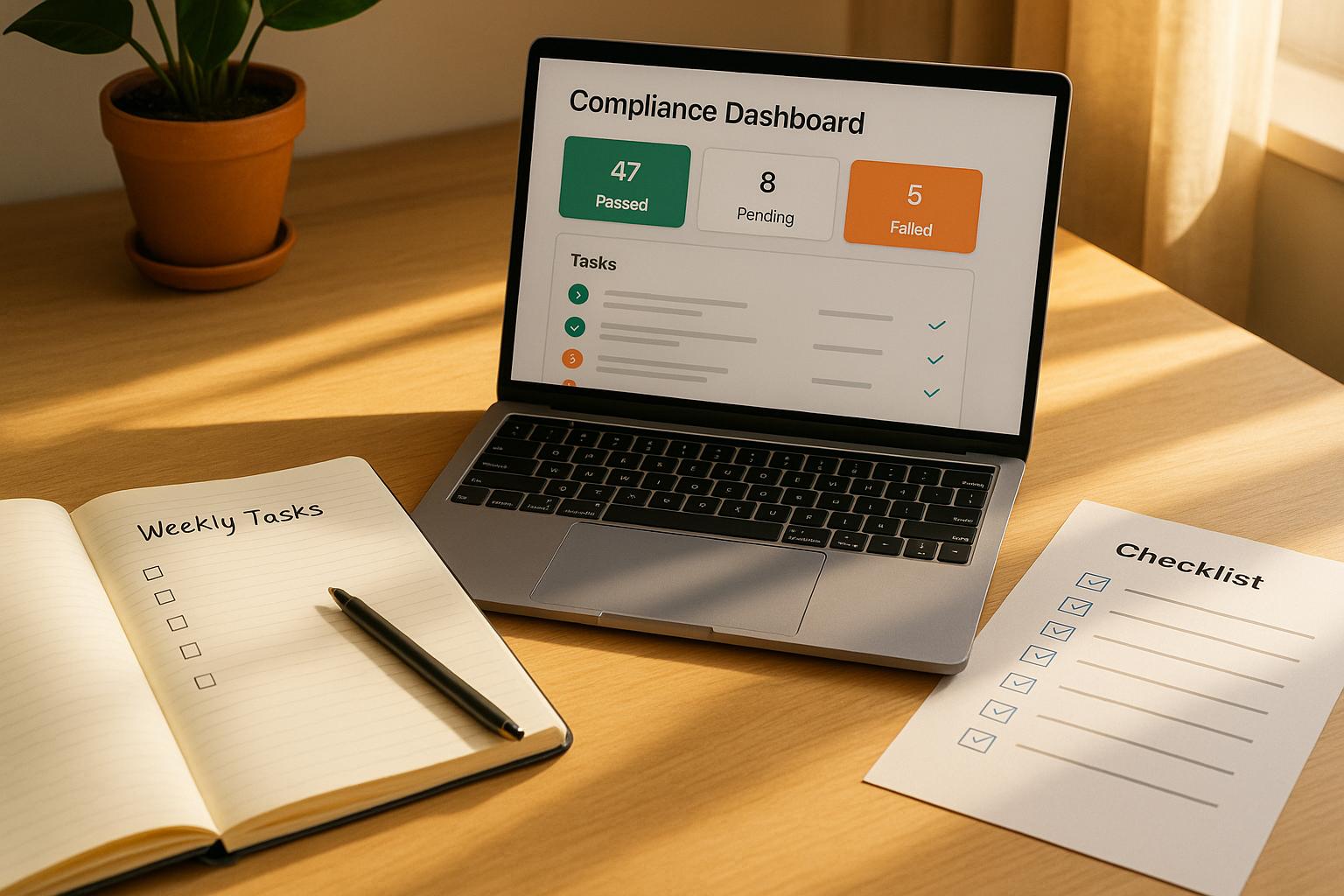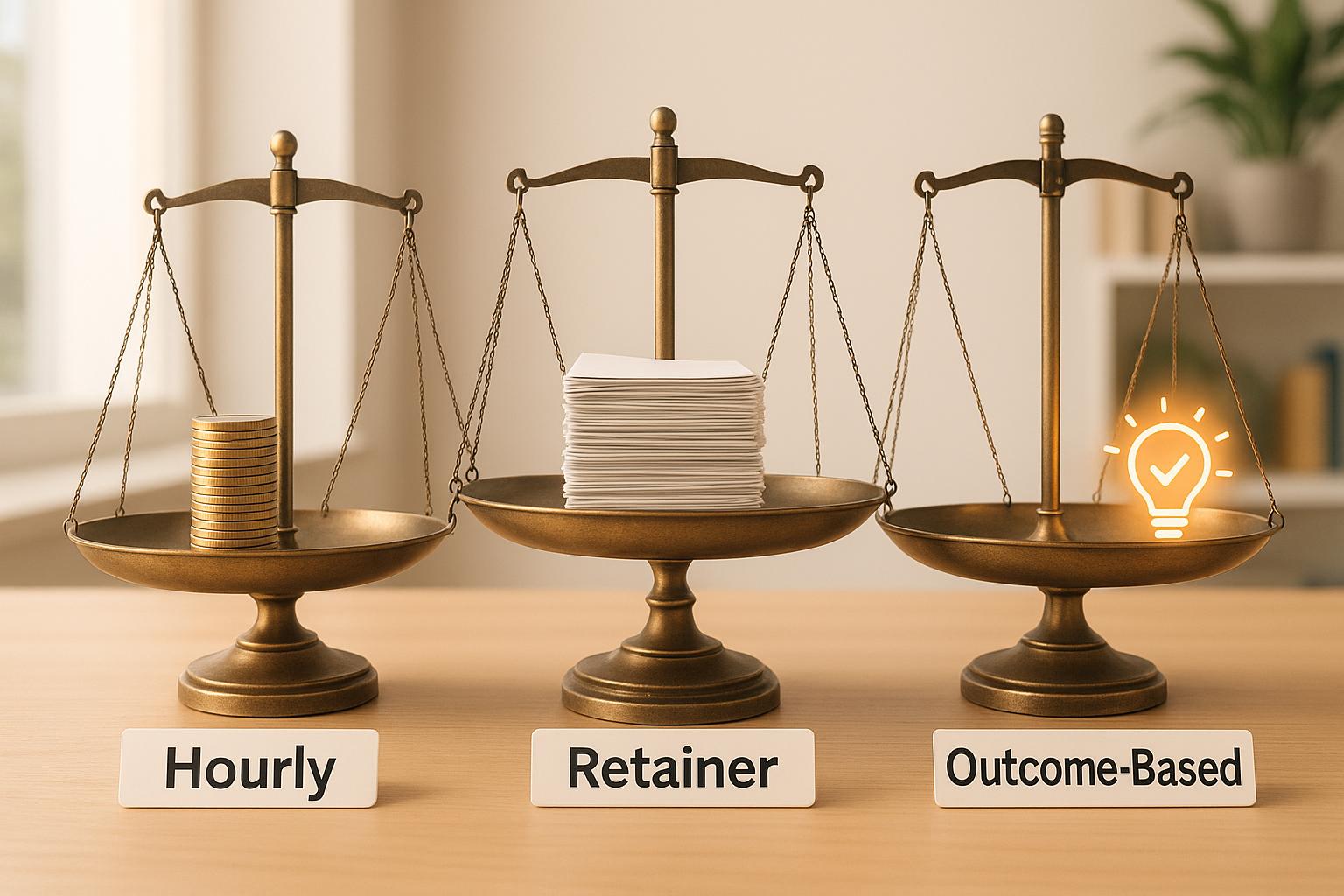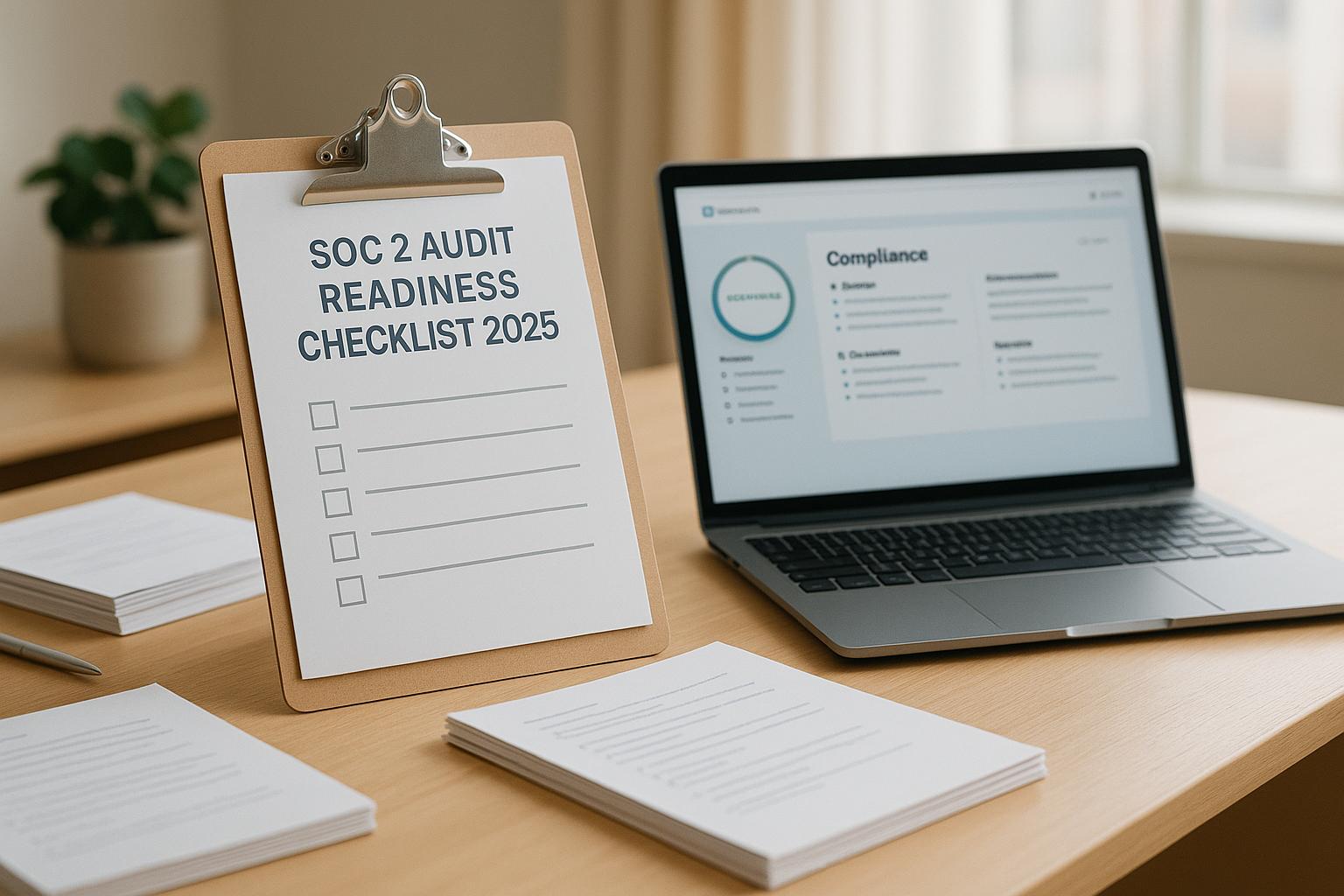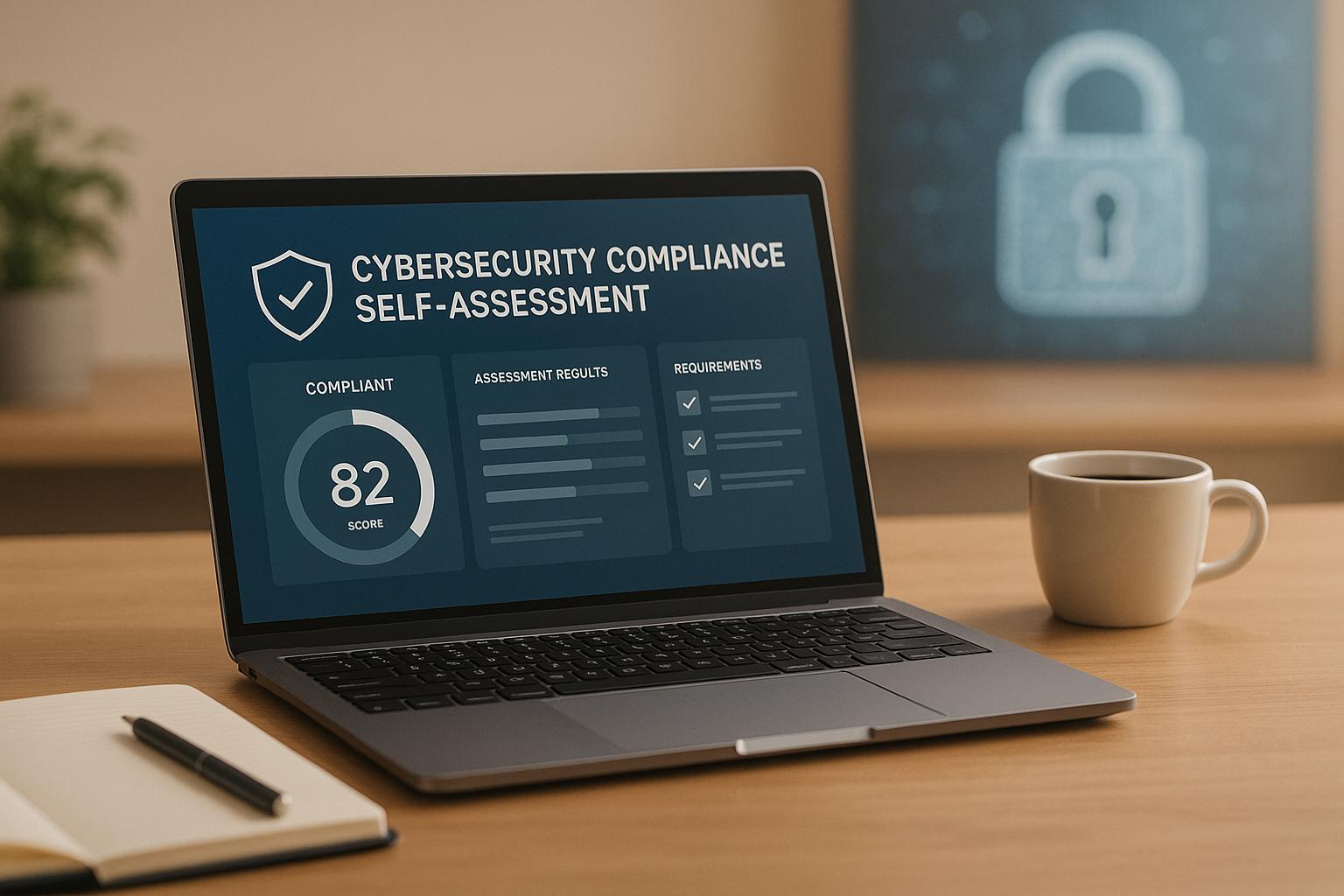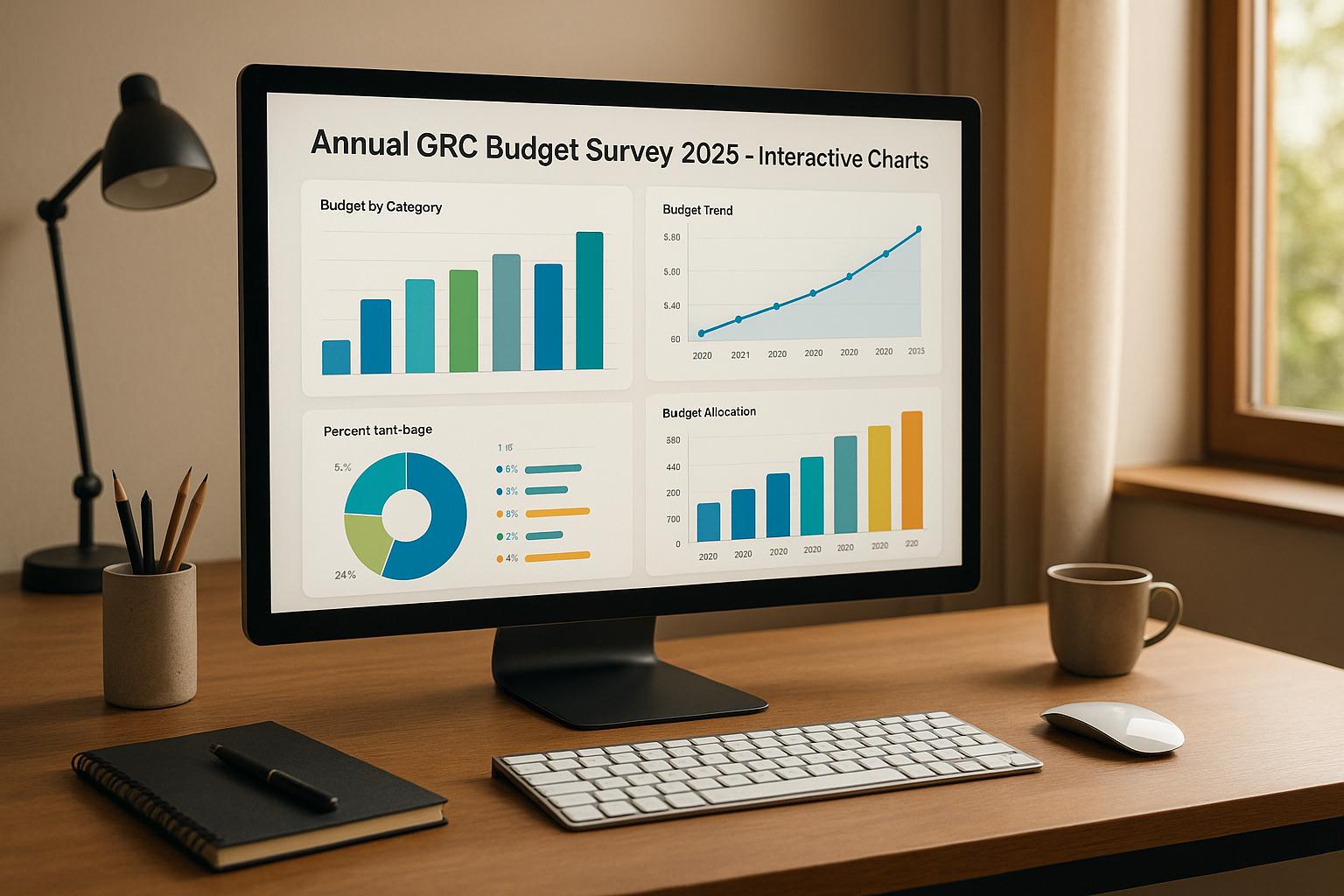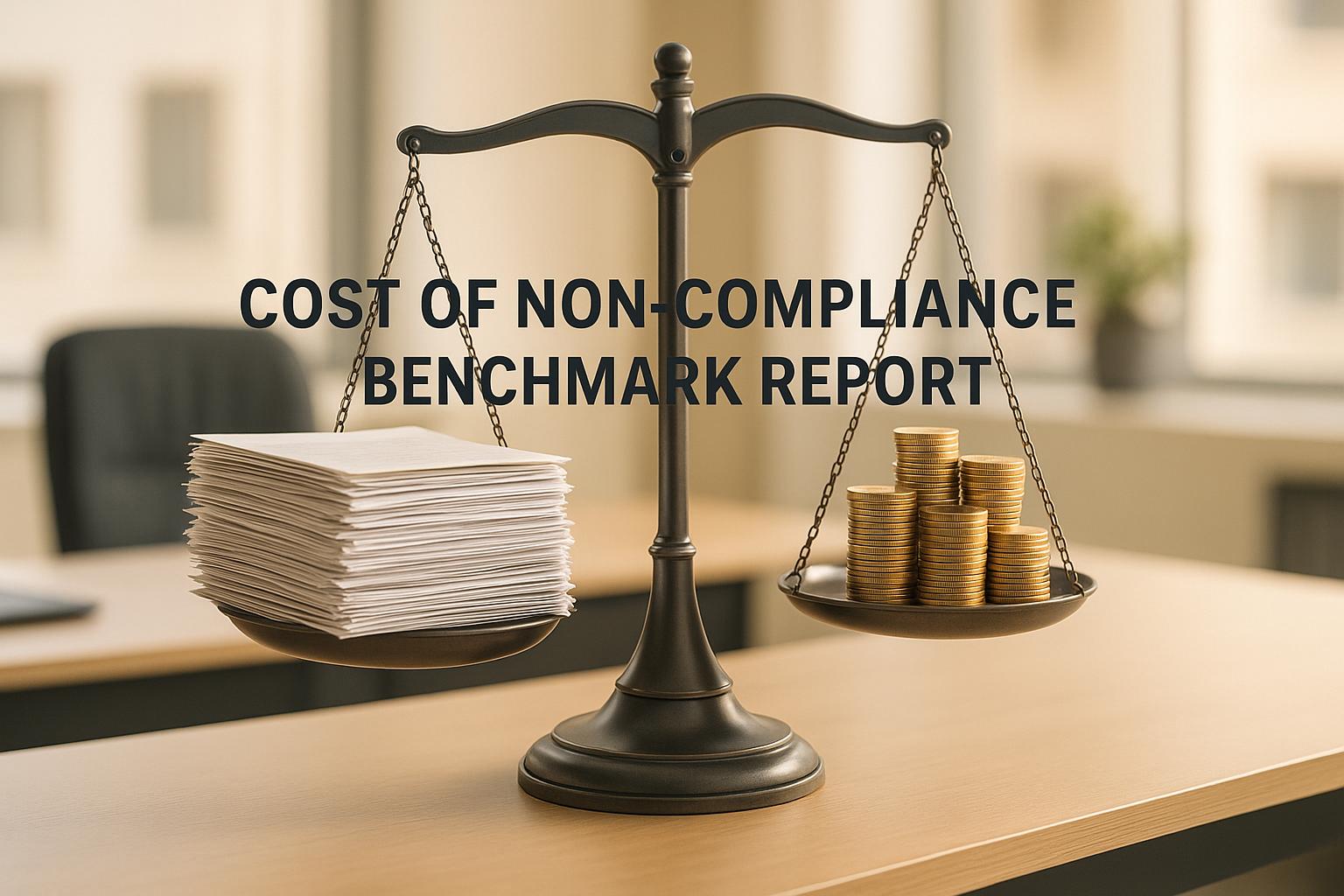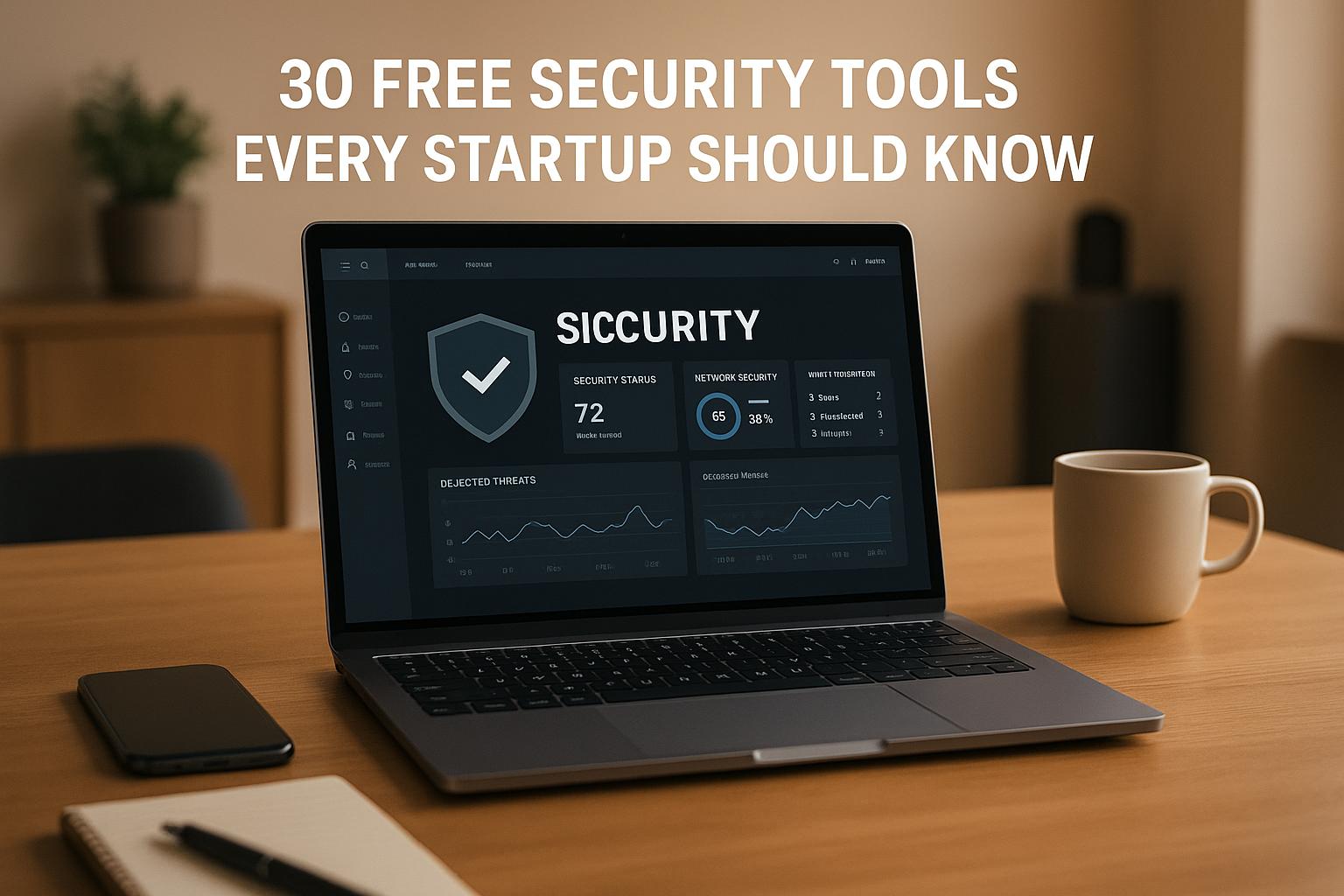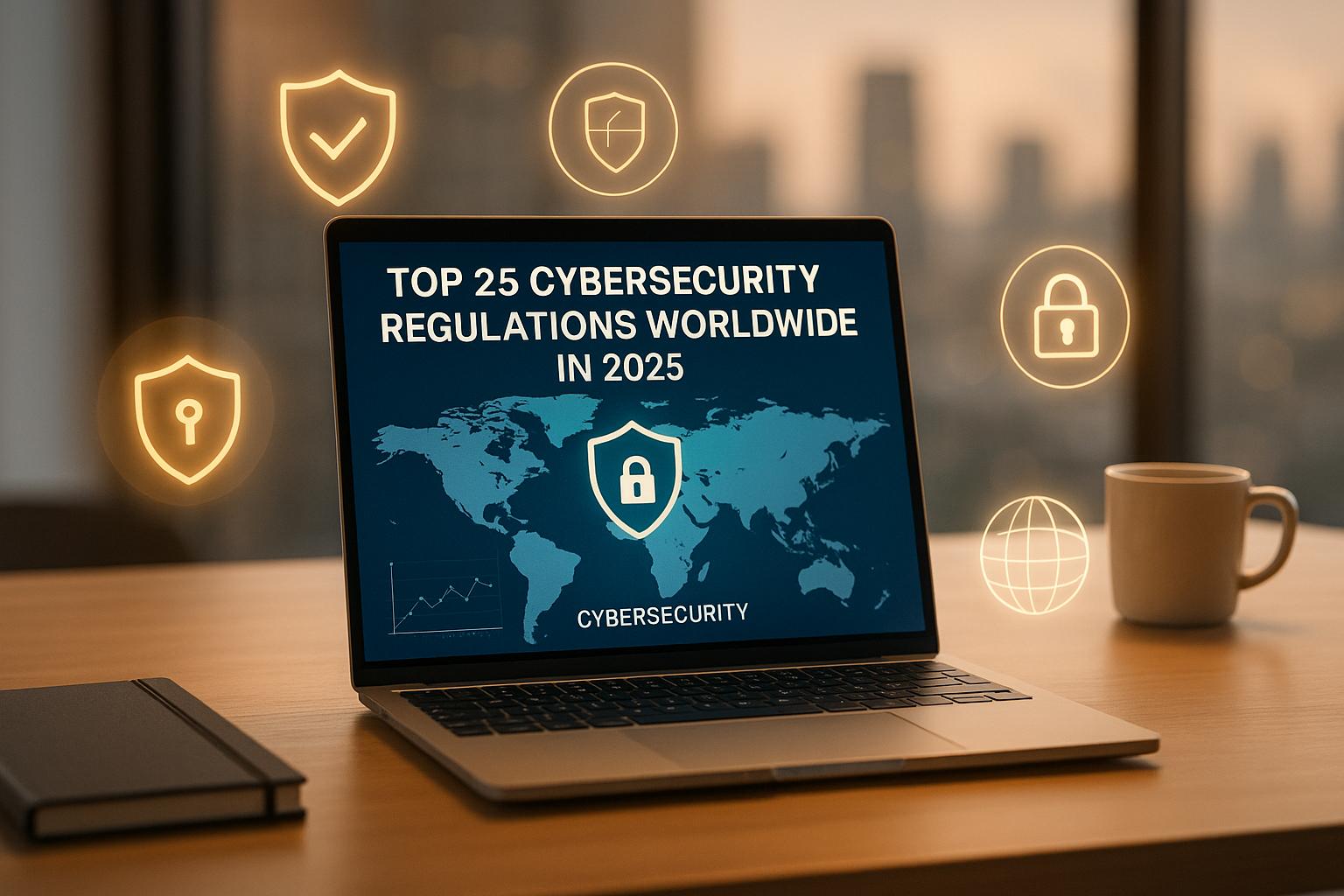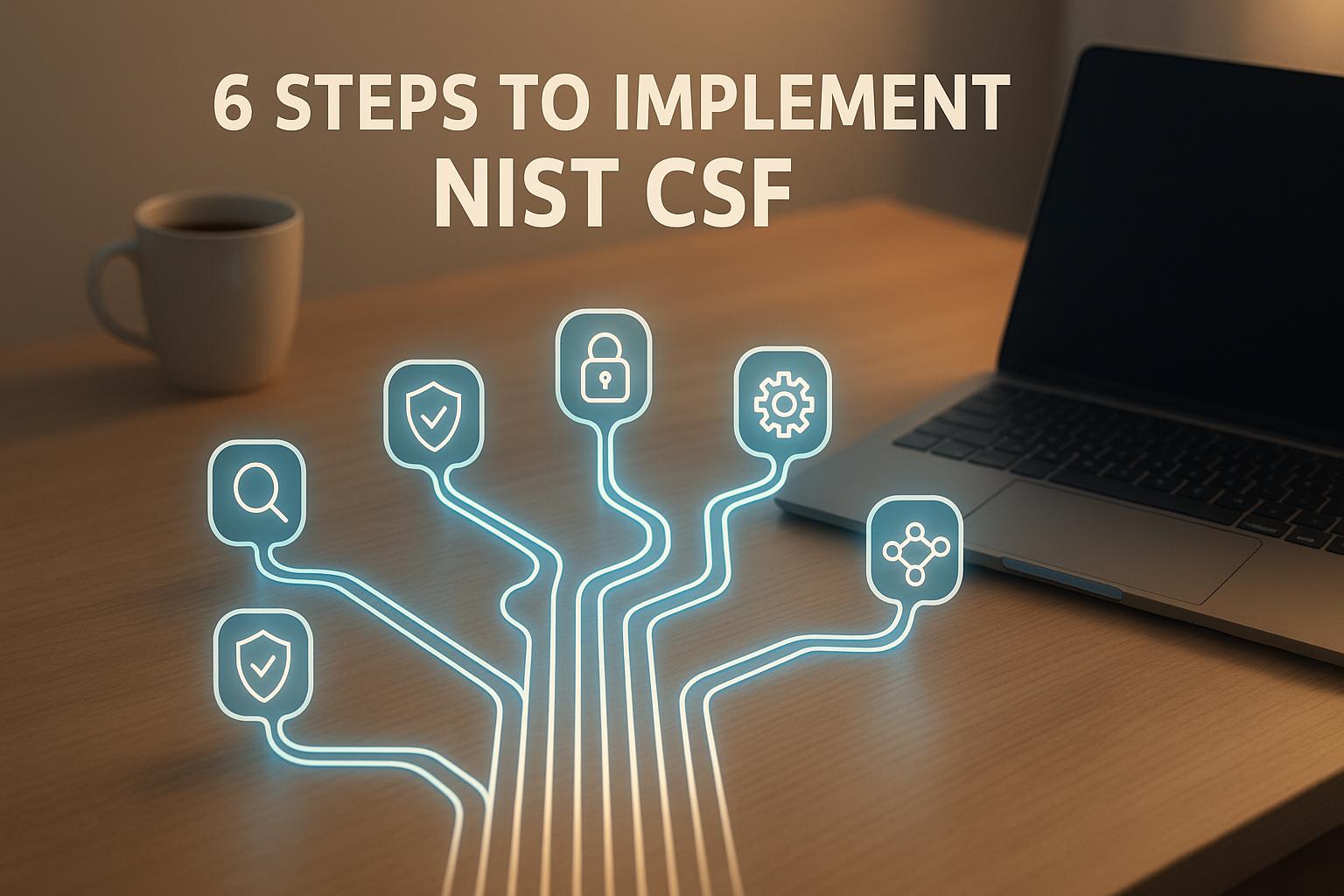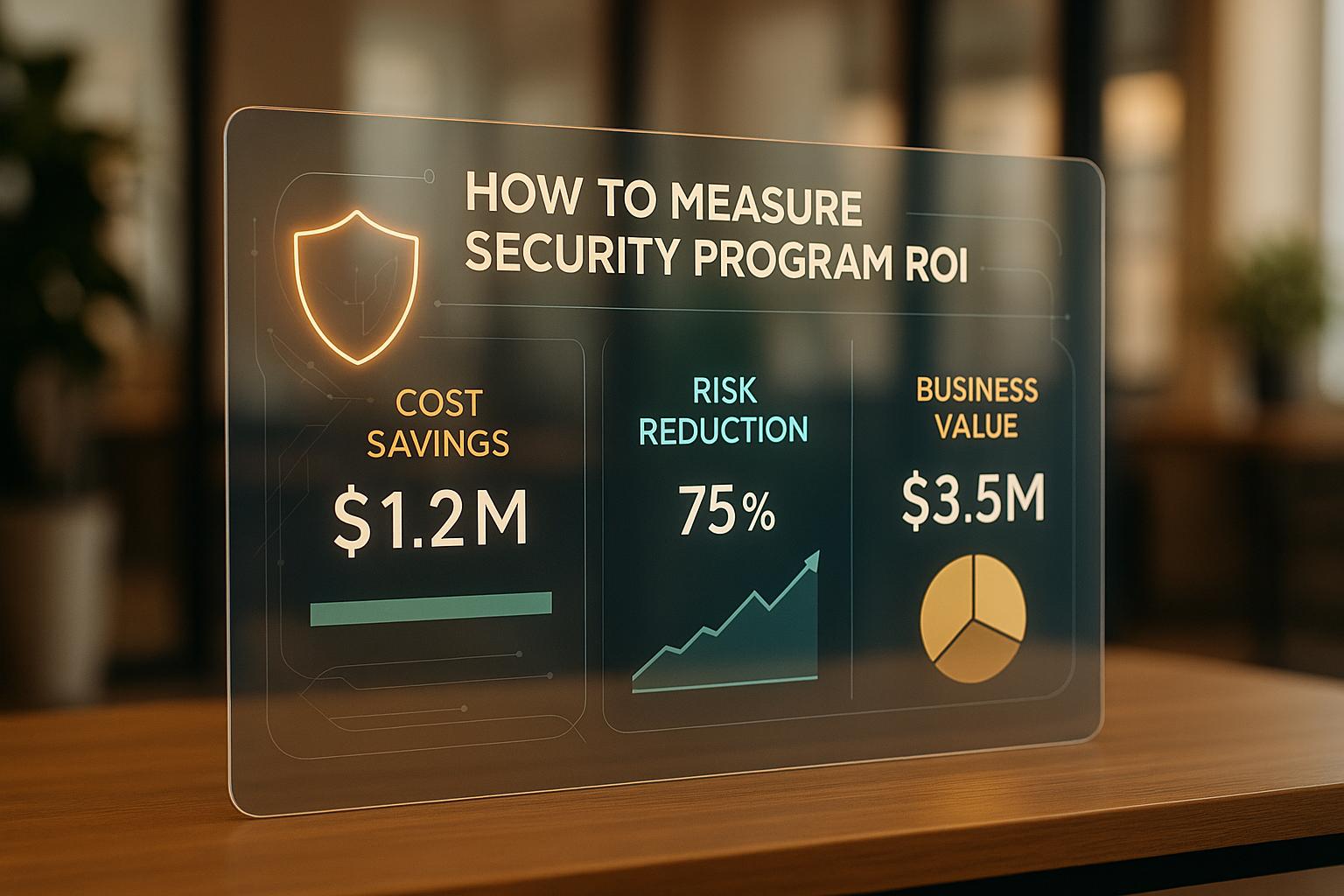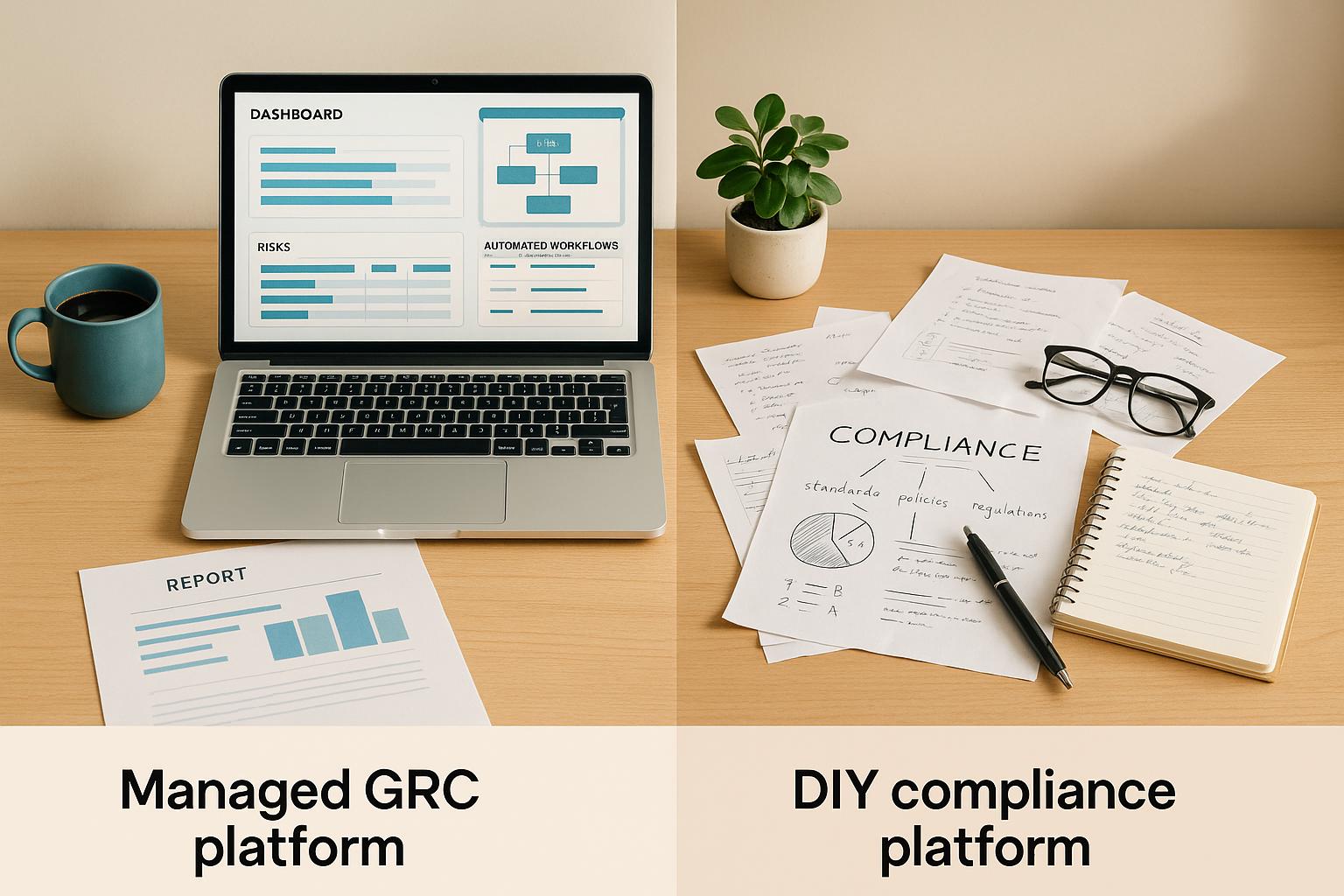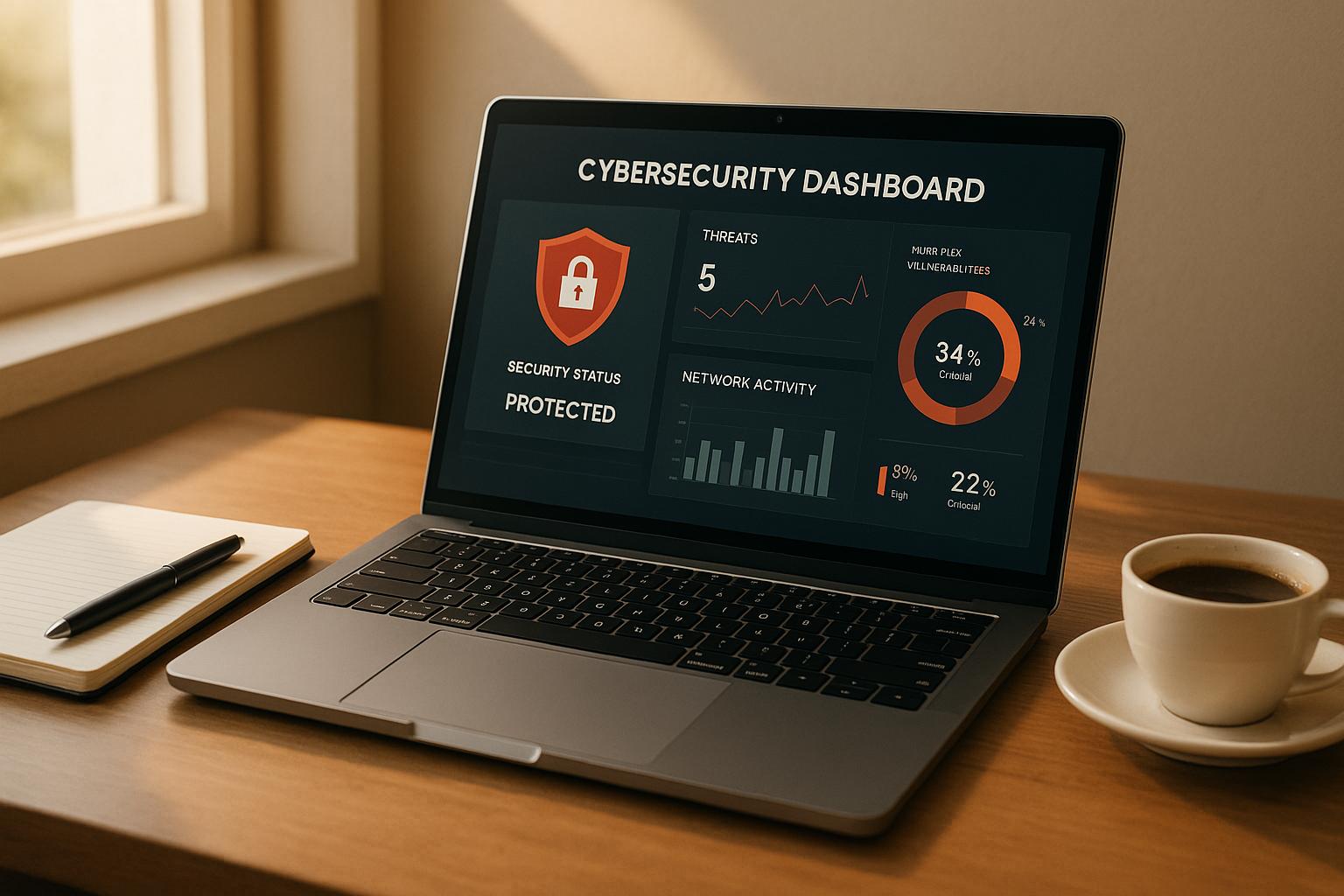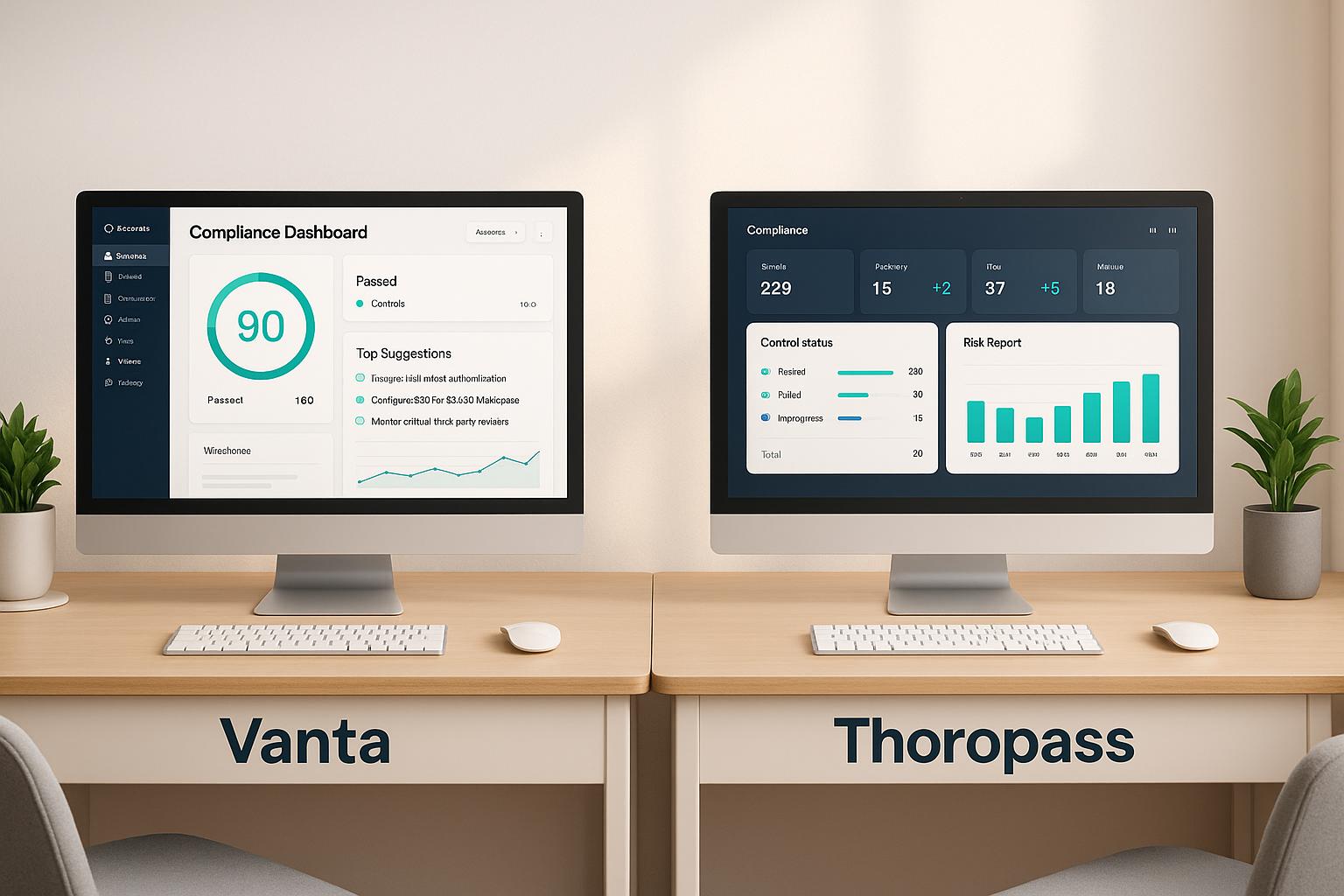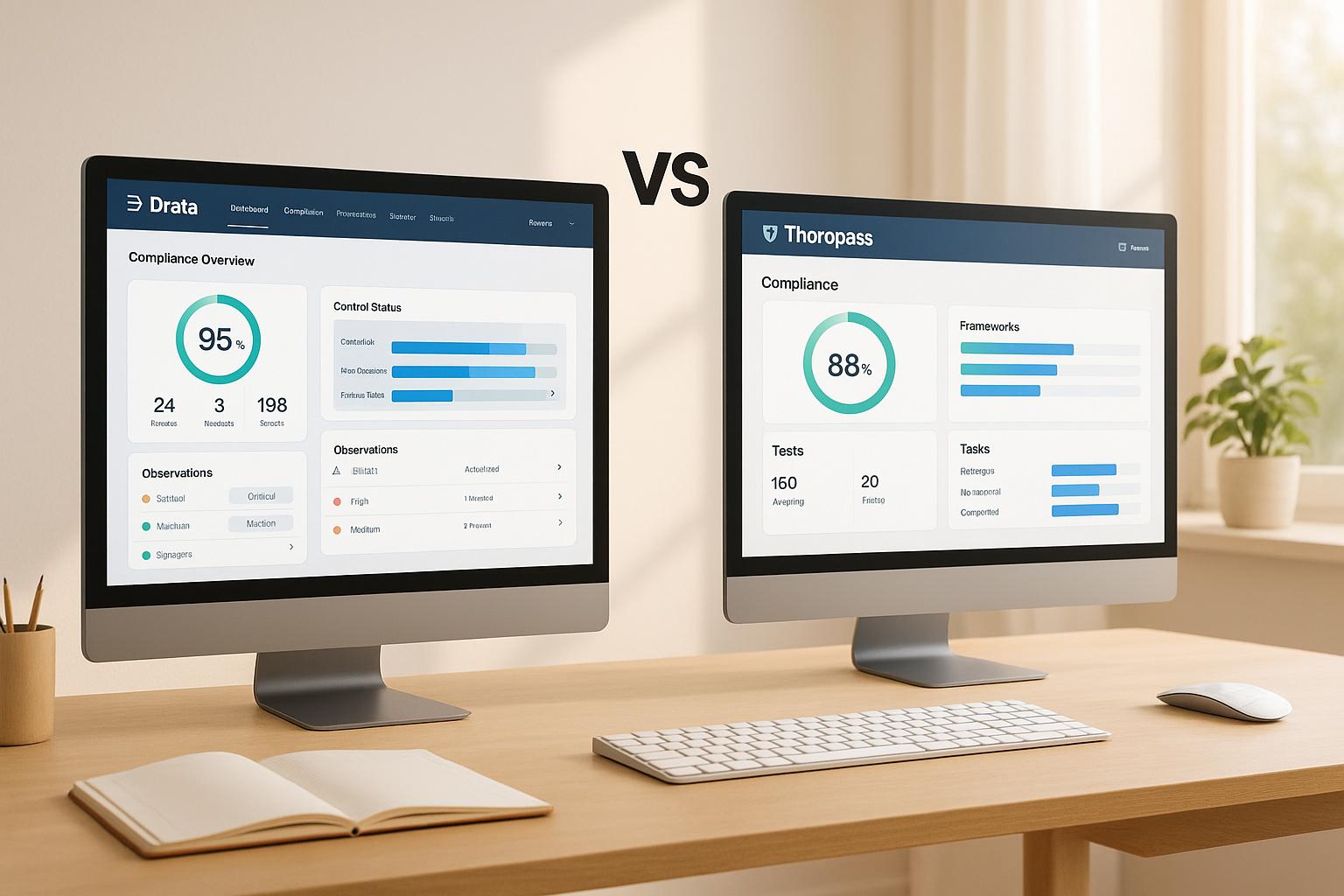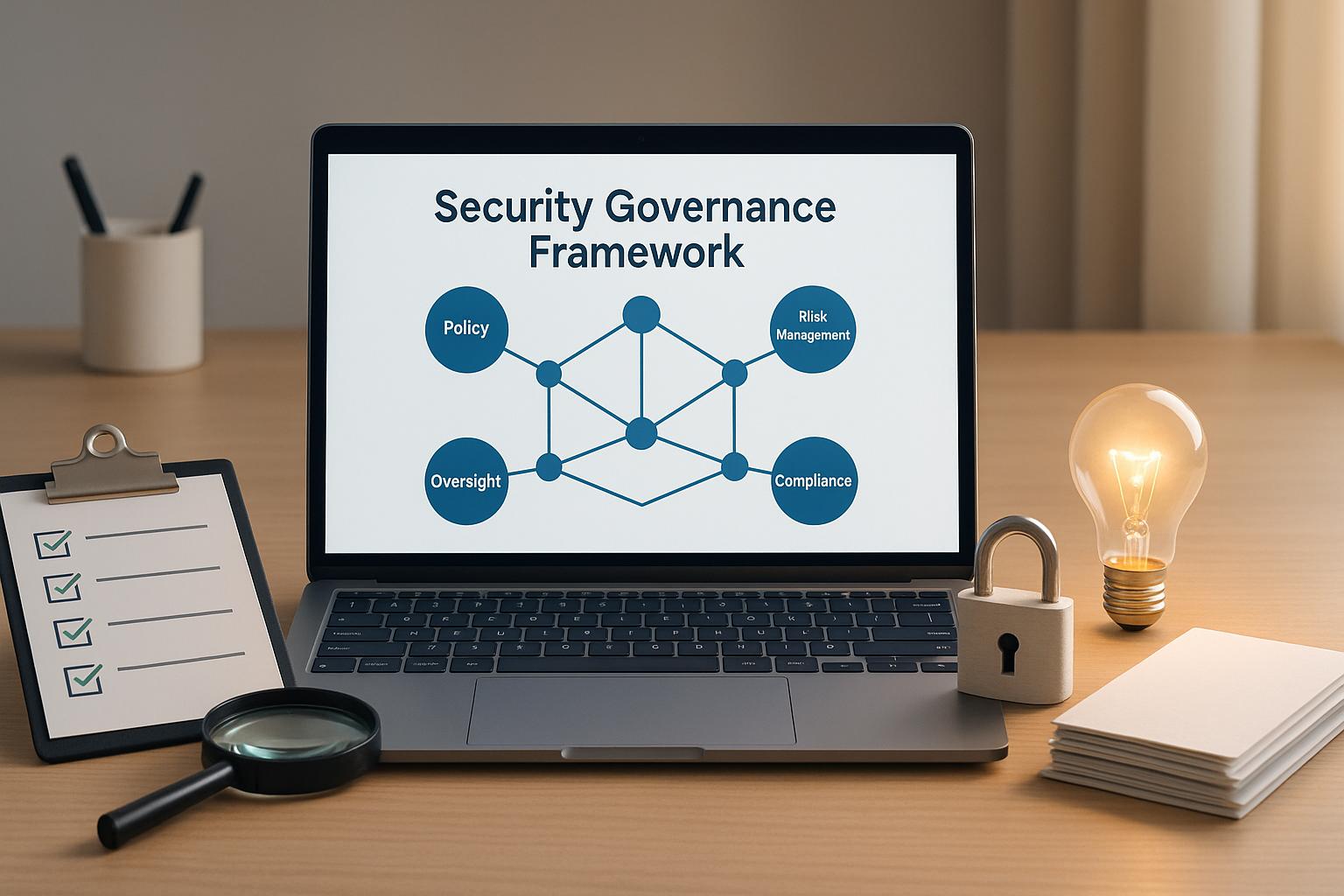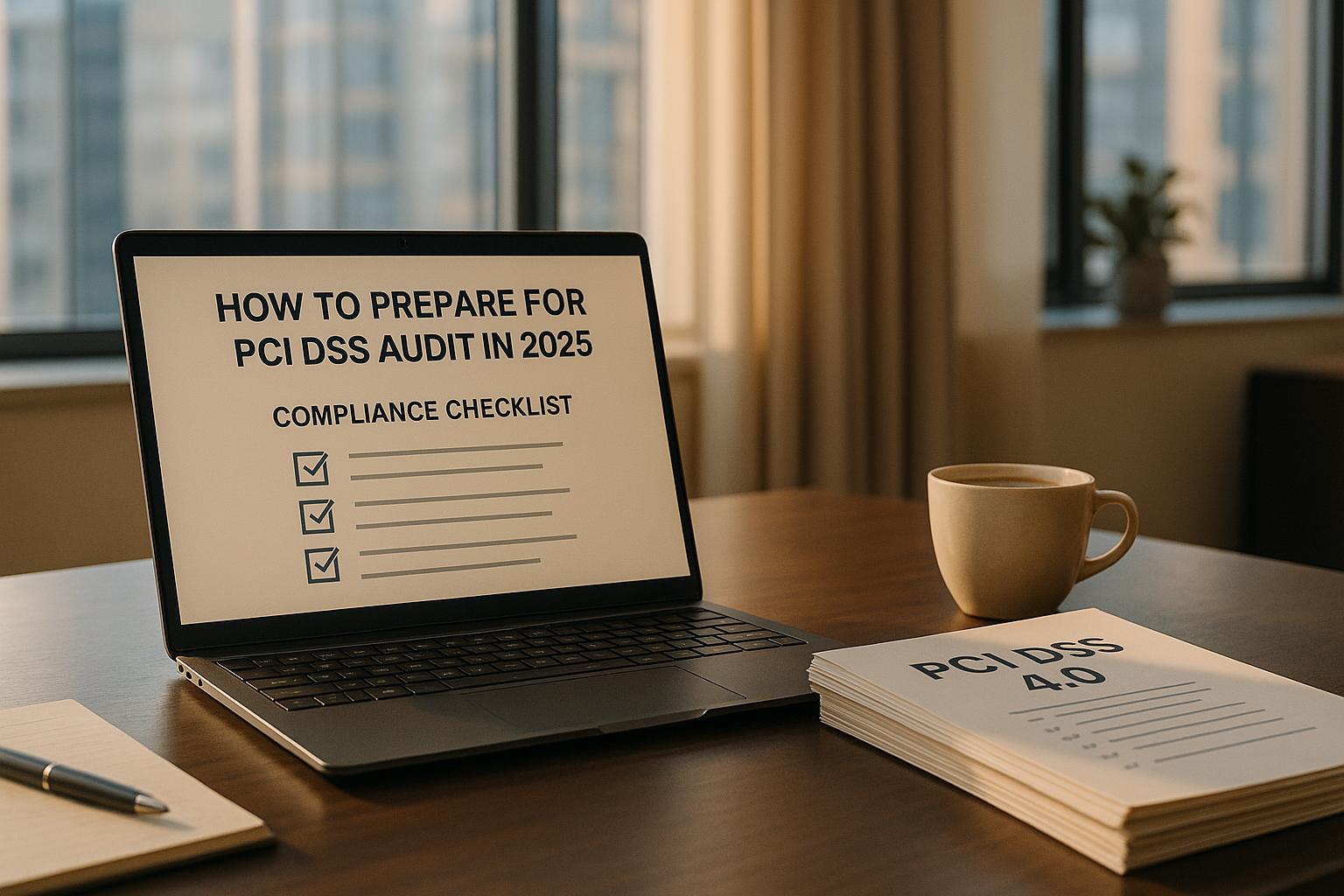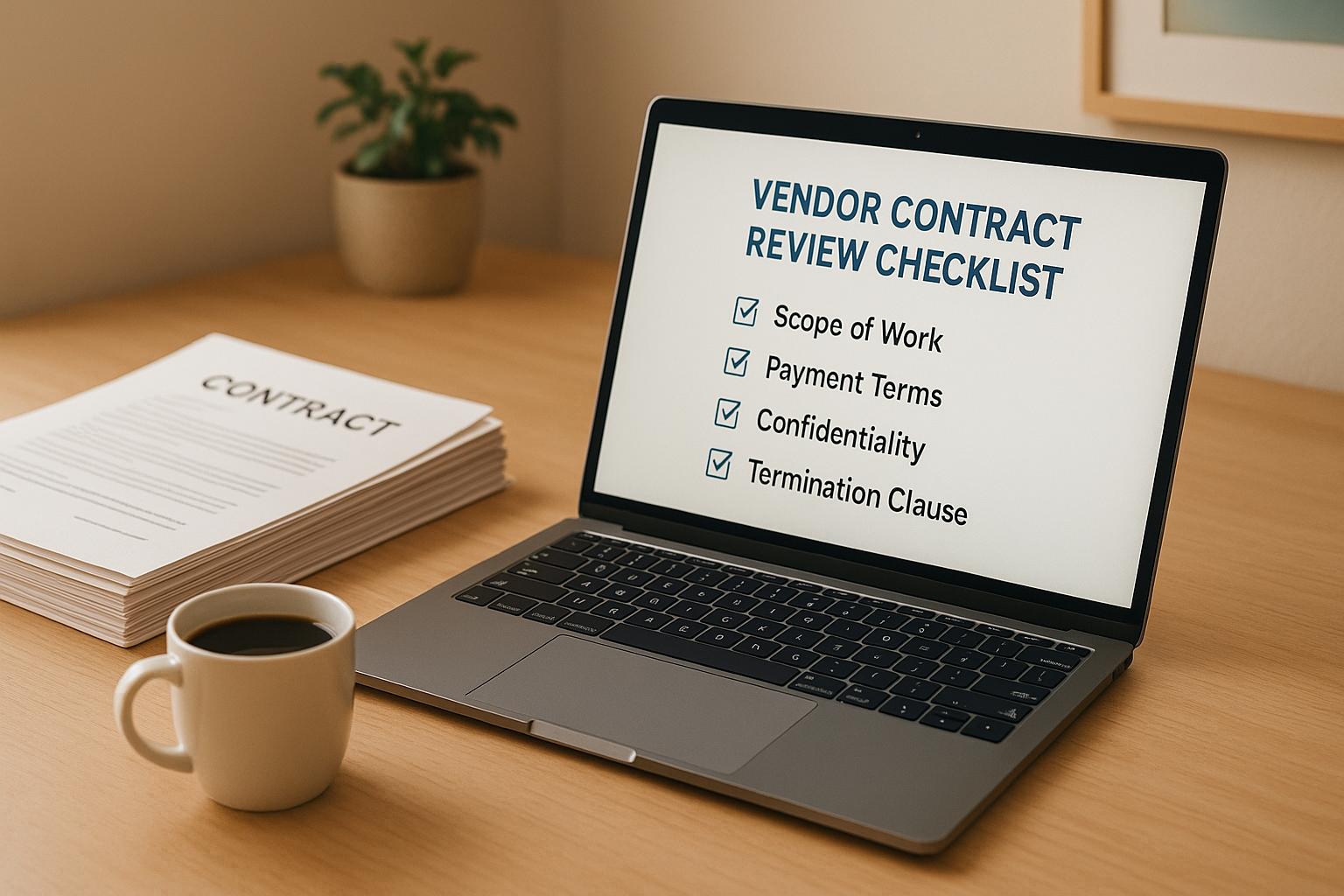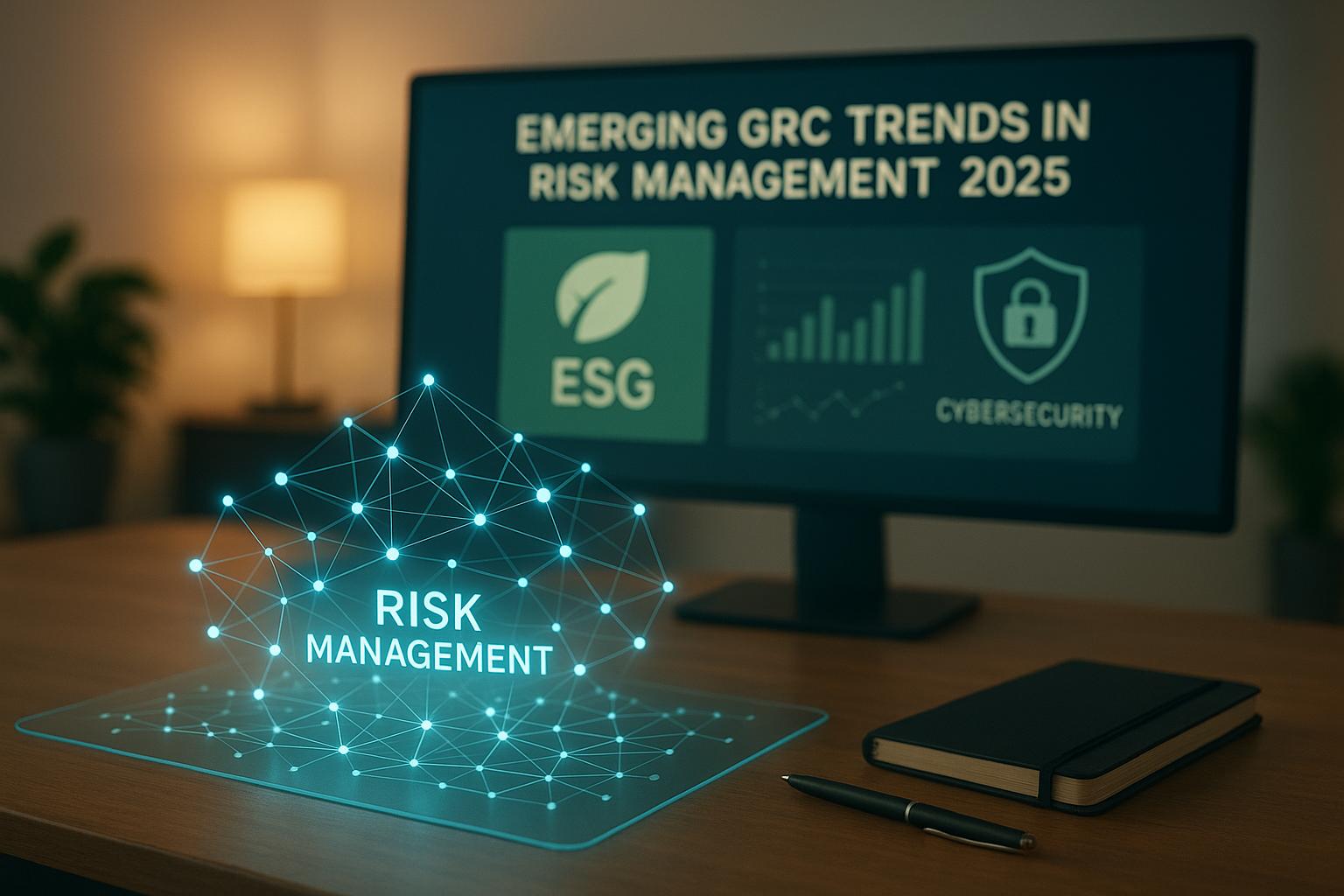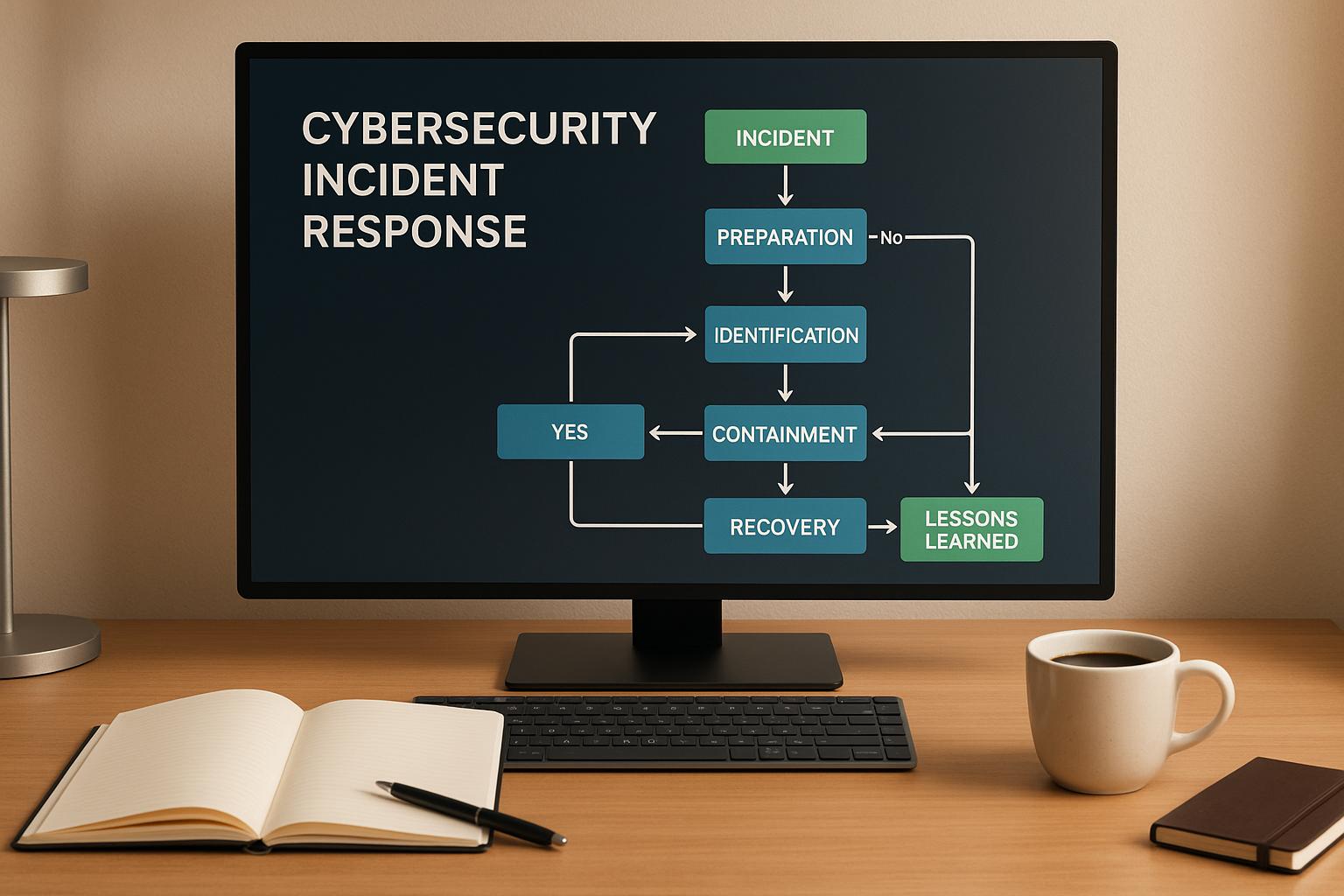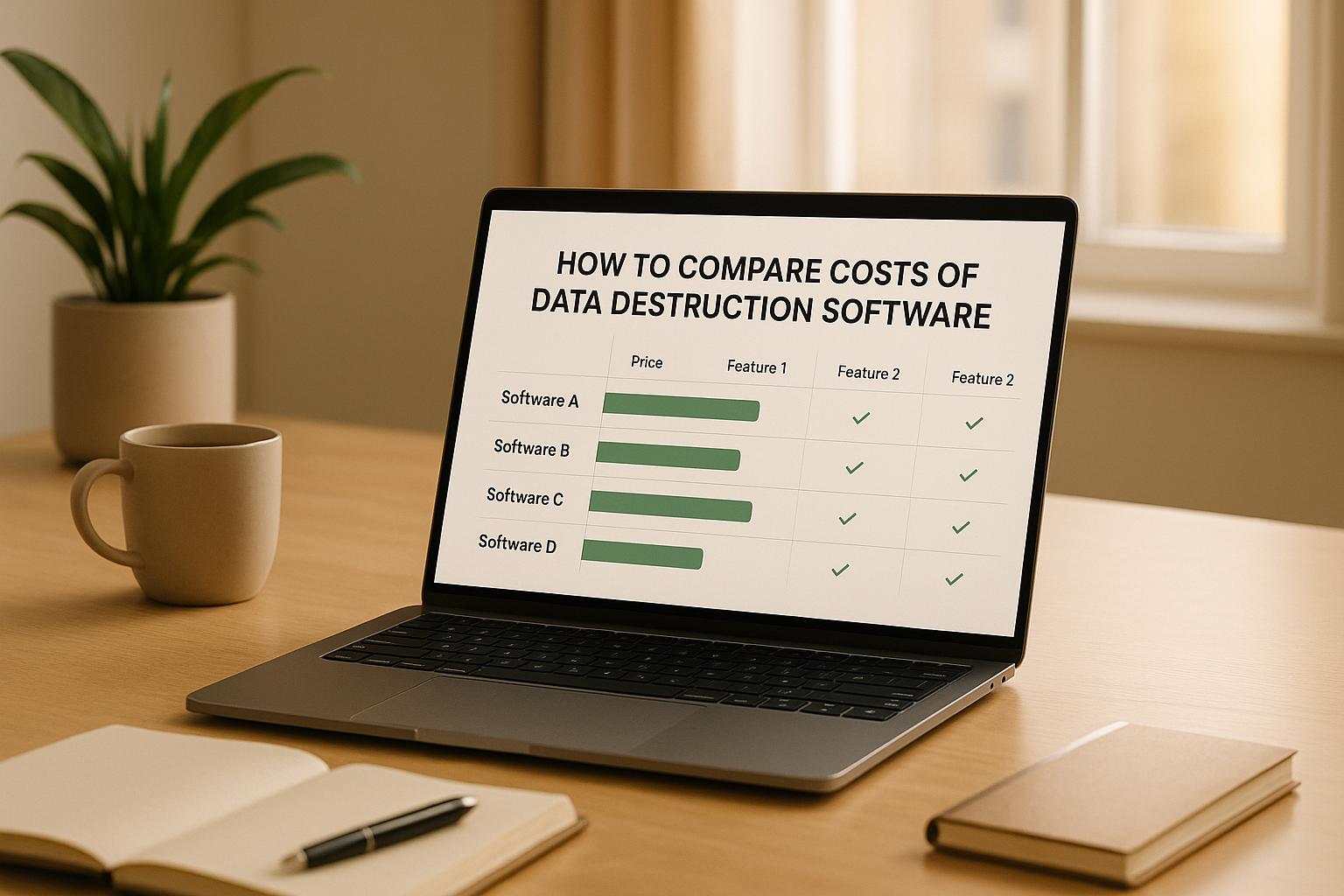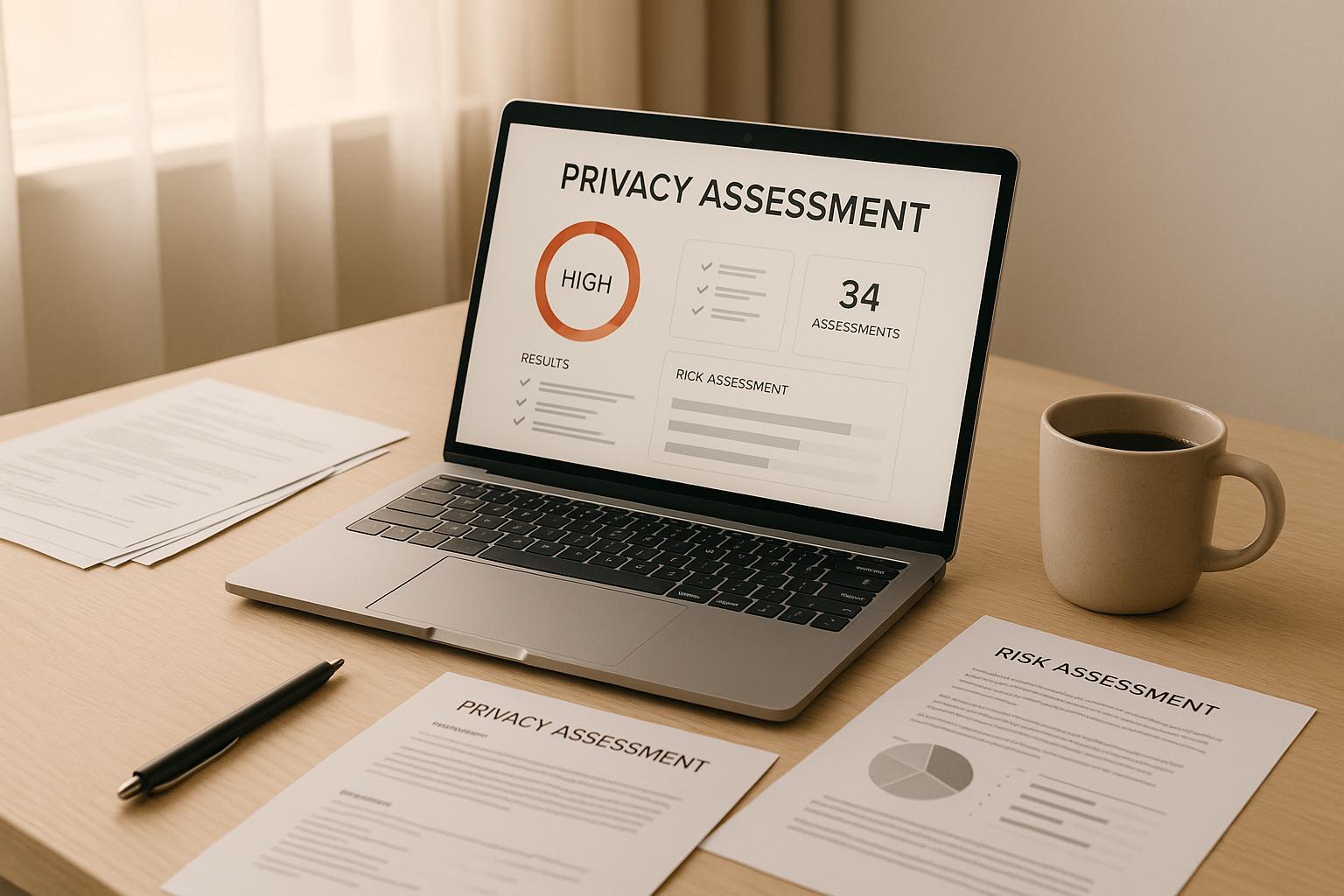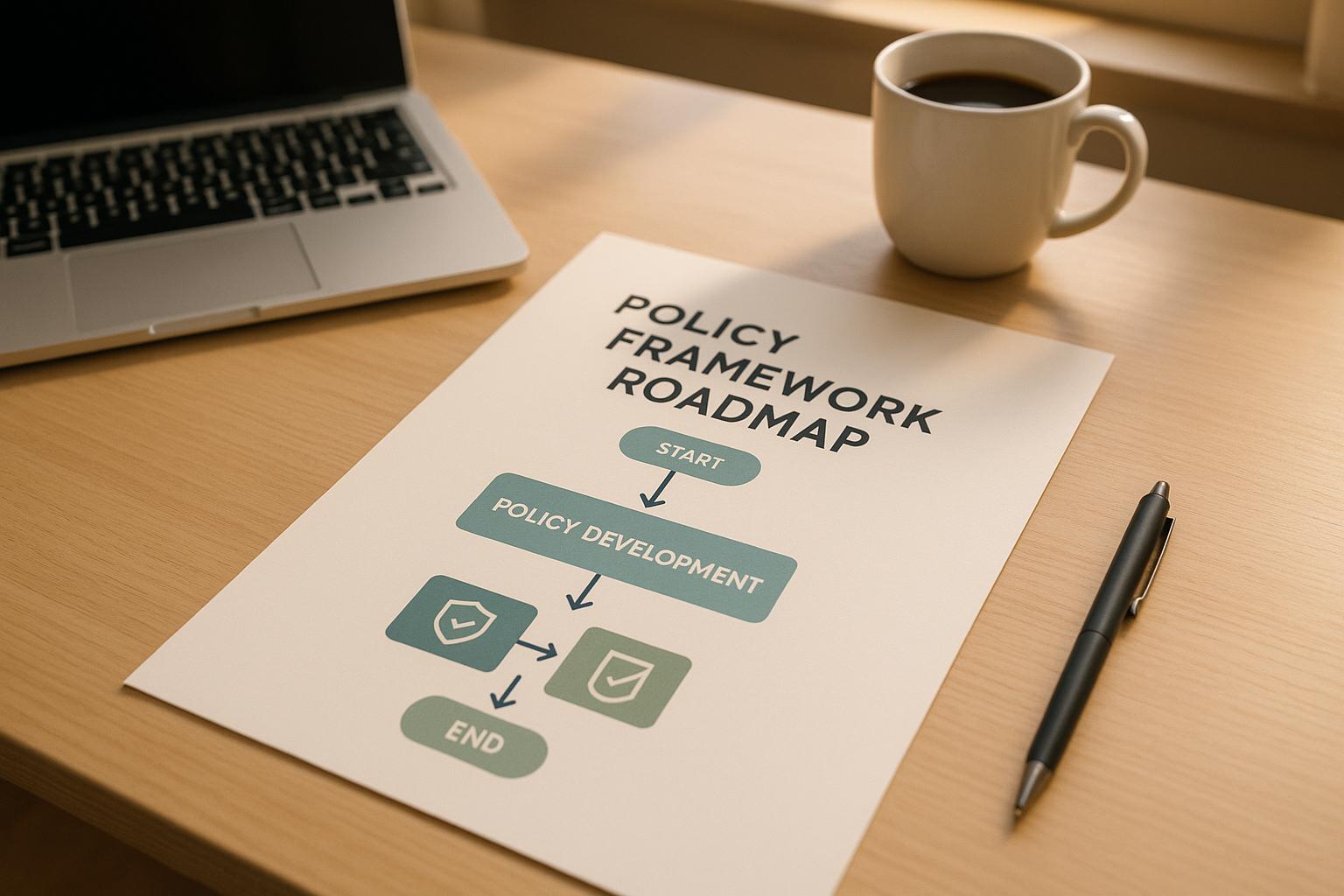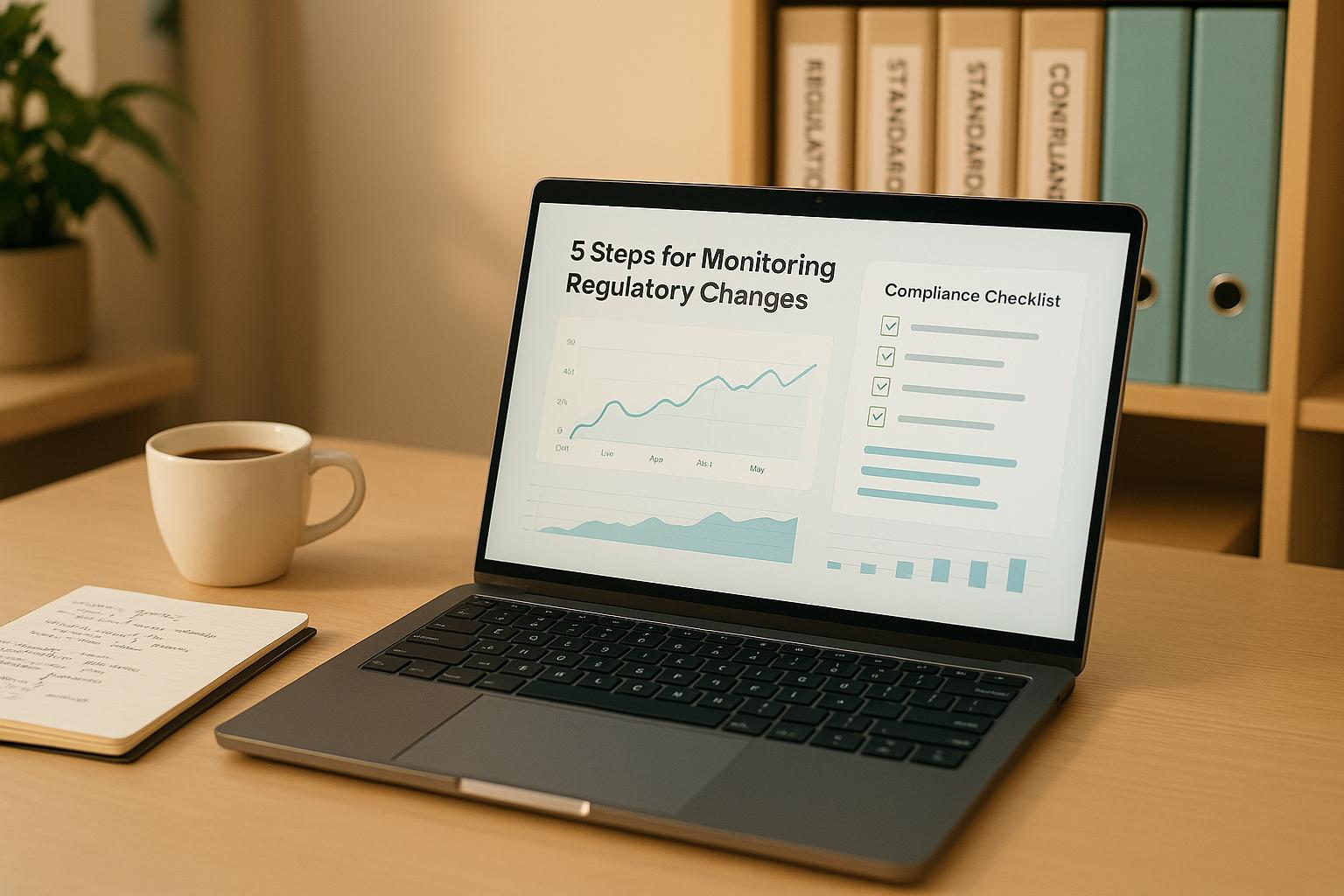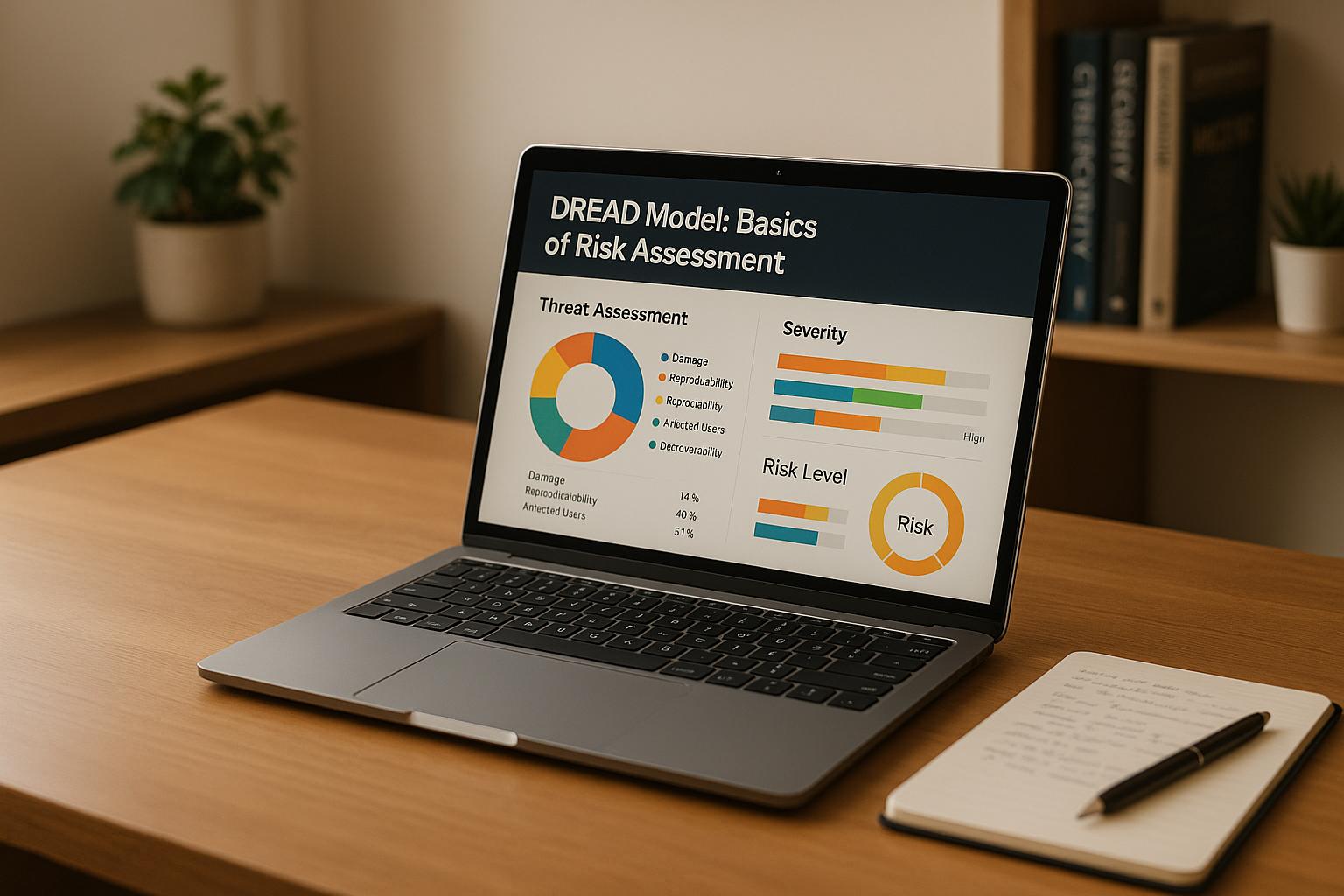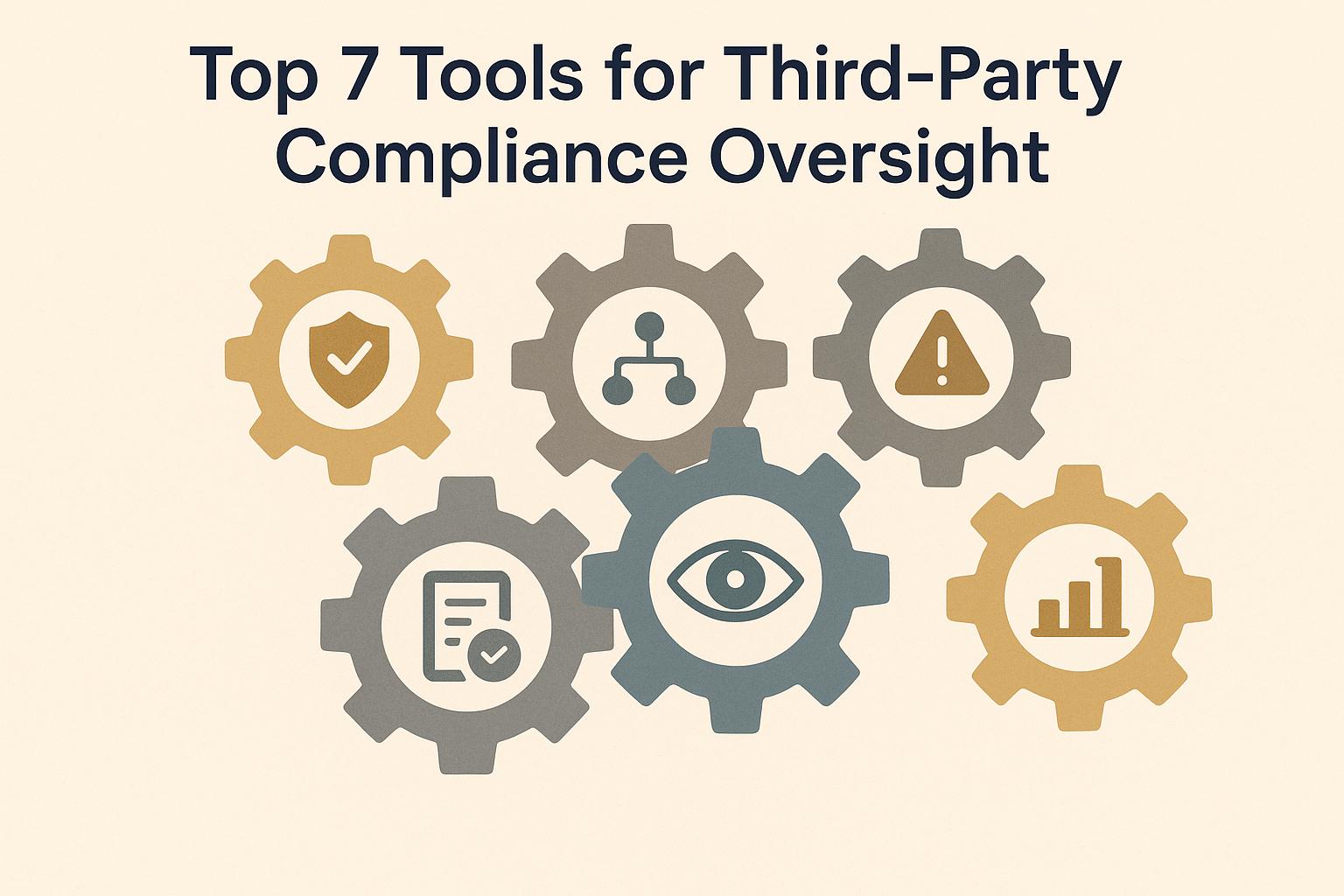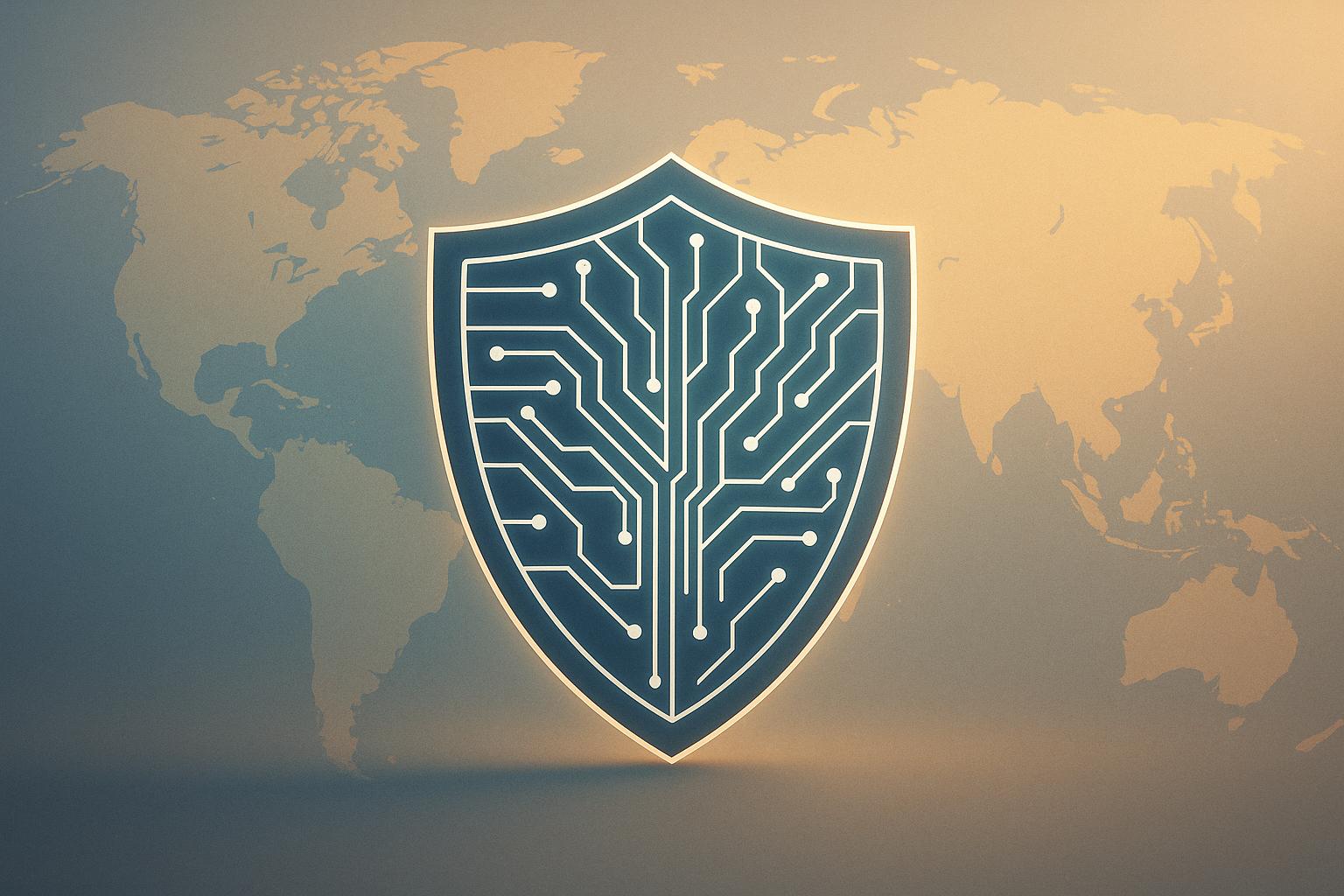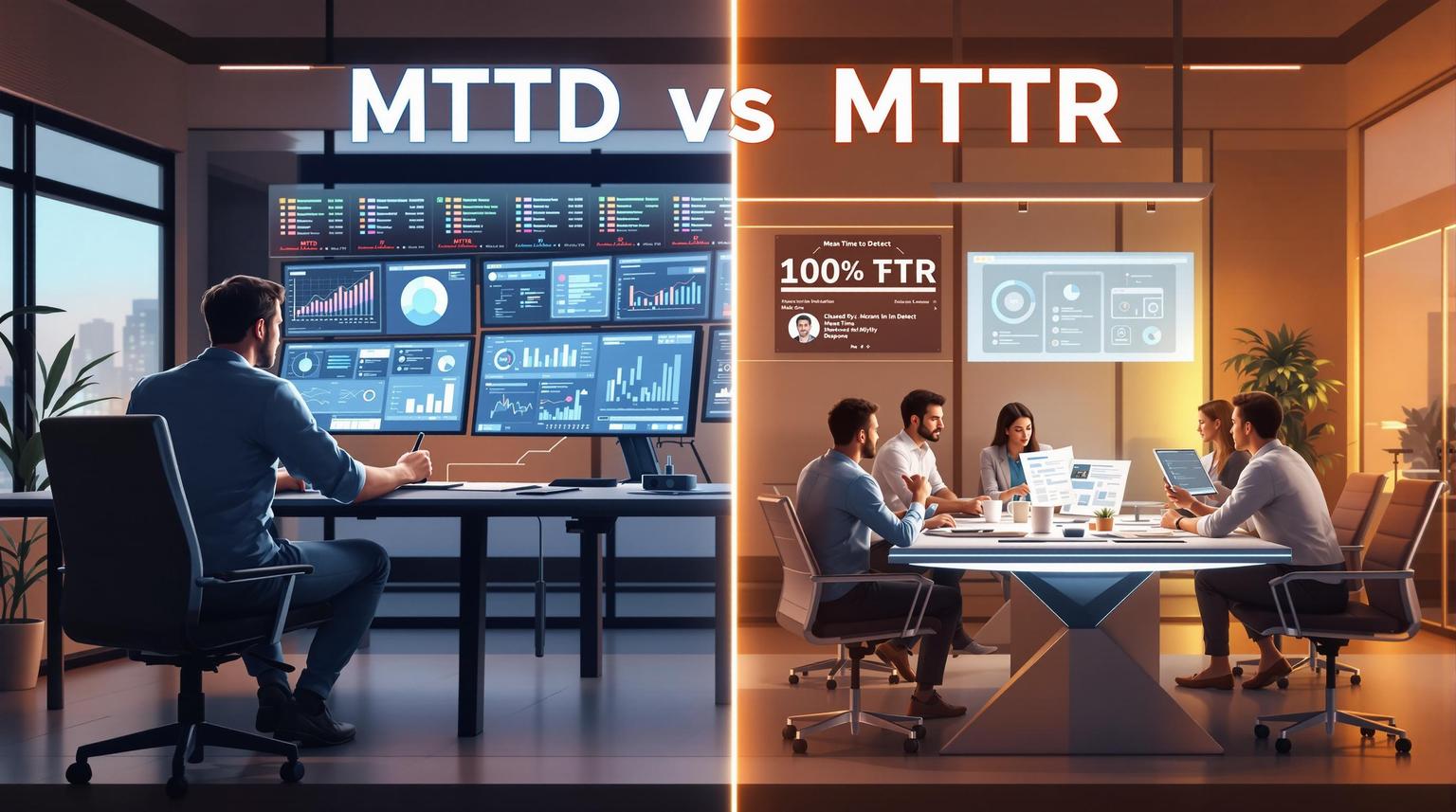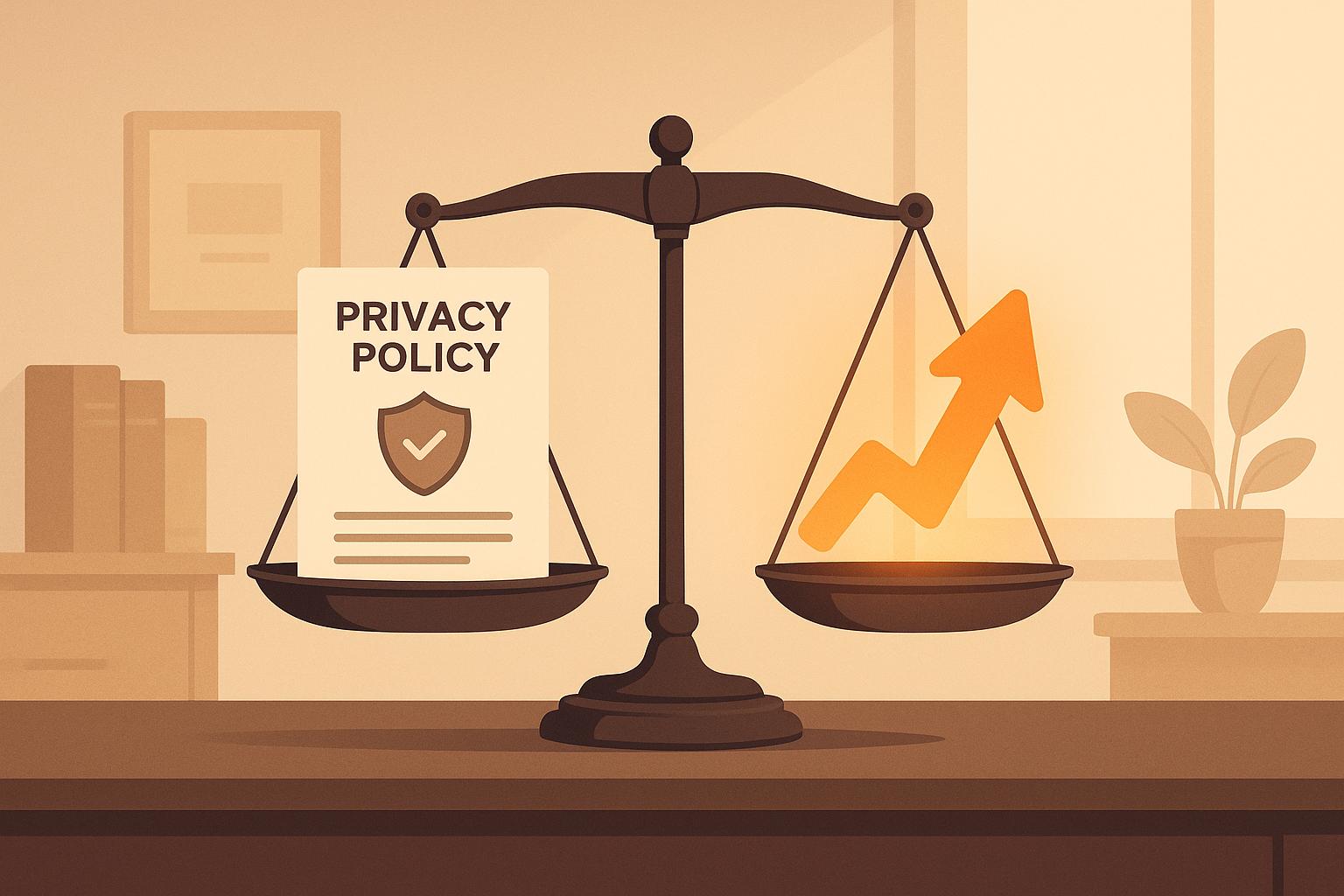
Startups are prime targets for cyberattacks, but you don’t need a huge budget to protect your business.
Cyberattacks hit 43% of small businesses, and the average breach can cost between $120,000 and $1.24 million. With 90% of breaches caused by human error, startups must prioritize affordable, effective tools to secure their operations. The good news? For under $100/month, you can build a security stack that safeguards your business, supports compliance, and builds trust with customers and investors.
Here’s a quick overview of 7 essential tools for startups:
- 1Password Teams ($8/user): Secure password management and sharing.
- Bitdefender GravityZone (from $30): Endpoint protection against malware and ransomware.
- Tugboat Logic (from $41.67): Compliance automation for SOC 2, ISO 27001, and more.
- Drata (from $500/year for startups): Automates compliance monitoring and audit prep.
- Vanta (from $400/month): Real-time compliance and security monitoring.
- Tenable.io (from $40/asset): Vulnerability management with continuous scanning.
- Cycore Secure (custom pricing): vCISO services and compliance management.
Quick Comparison
| Tool | Primary Function | Monthly Price (USD) | Features | Compliance Support | Best For |
|---|---|---|---|---|---|
| 1Password Teams | Password management | $8/user | Password sharing, MFA, admin controls | SOC 2, GDPR | Small teams needing password security |
| Bitdefender | Endpoint protection | From $30 | Malware protection, device control | Basic compliance reporting | Startups needing endpoint security |
| Tugboat Logic | Compliance automation | From $41.67 | Risk assessments, audit tools | SOC 2, ISO 27001, HIPAA | Startups preparing for certifications |
| Drata | Compliance monitoring | From $500/year | Automated evidence collection | SOC 2, ISO 27001, HIPAA | Scaling startups with compliance needs |
| Vanta | Compliance and security | From $400/month | Real-time monitoring, audit prep | SOC 2, GDPR, HIPAA | Startups needing continuous compliance |
| Tenable.io | Vulnerability management | From $40/asset | Threat prioritization, scanning | GDPR, HIPAA, SOC 2 | Startups with cloud or hybrid setups |
| Cycore Secure | Security and compliance services | Custom pricing | vCISO, vDPO, vendor risk management | SOC 2, ISO 27001, GDPR | Startups needing outsourced expertise |
Start with password management and endpoint protection, then scale up with compliance and vulnerability tools as your business grows. Investing early in security not only protects your startup but also builds trust with investors and customers.
Building A Security Program For Startups Preventing And Responding To Cyber Breach
How to Choose Security Tools for Your Startup
When selecting security tools for your startup, it’s crucial to think beyond immediate needs. The right tools not only protect your business but also grow with it. On the flip side, poor choices can leave you open to attacks or lead to expensive problems down the road.
Start by addressing compliance early. For startups, compliance isn't just a checkbox - it’s a competitive advantage. 60% of companies prefer working with startups that have achieved SOC 2, and 70% of venture capitalists favor investing in SOC 2-compliant startups. Additionally, 44% of companies now require cybersecurity measures as part of their RFP process. If you’re aiming to attract enterprise clients or secure funding, compliance is a must.
"The cost of non-compliance is great. If you think compliance is expensive, try non-compliance." – Paul McNulty, Former U.S. Deputy Attorney General
Next, ensure your tools integrate seamlessly with your existing systems. Security solutions that don’t fit into your workflows can create inefficiencies and delays. Look for tools that work effortlessly with your development pipelines, CI/CD systems, and current software stack. This integration minimizes the hassle of retrofitting security into your processes later.
Think ahead - your startup won’t stay small forever. Choose tools designed for scalability. Solutions with modular architectures allow you to upgrade incrementally as you grow, avoiding the need for a complete overhaul. Your security setup should evolve alongside your business.
Automation and risk prioritization are game-changers. Manual security processes can’t keep up with growth and are prone to errors. Opt for tools that provide automated vulnerability scans, threat detection, patch management, and compliance reporting. These features help you focus on the most critical risks, ensuring you address the vulnerabilities that matter most to your business.
Be honest about your team’s expertise. If you lack dedicated security staff, prioritize tools with intuitive interfaces, clear documentation, and responsive customer support. In some cases, managed services or outsourced security expertise can be a smart choice to fill gaps while you build internal capabilities.
Involve all departments in your security strategy. Security isn’t just an IT issue - it impacts legal, HR, sales, and development teams too. Choose tools that support cross-functional collaboration with features like role-based access, straightforward reporting, and user-friendly documentation. This approach ensures everyone in your organization can contribute to maintaining security.
Finally, factor in the total cost of ownership. While this guide focuses on tools under $100 per month, don’t forget to account for setup and training expenses. A slightly pricier tool with minimal setup might save money in the long run compared to a cheaper option that requires extensive configuration.
Start early and make security part of your company culture. As one expert from IS Partners explained:
"Key risks include that startups may have difficulty going to market - competing against other software products that already have a SOC 2 report - and that security controls haven't been implemented, leading to concerns about the security posture of the tool."
Keep in mind that compliance isn’t a one-and-done achievement. Choose tools that support ongoing monitoring, regular audits, and adaptability to new threats. The effort you put into security today will pay off in customer trust, investor confidence, and protection against future breaches.
1. Cycore Secure
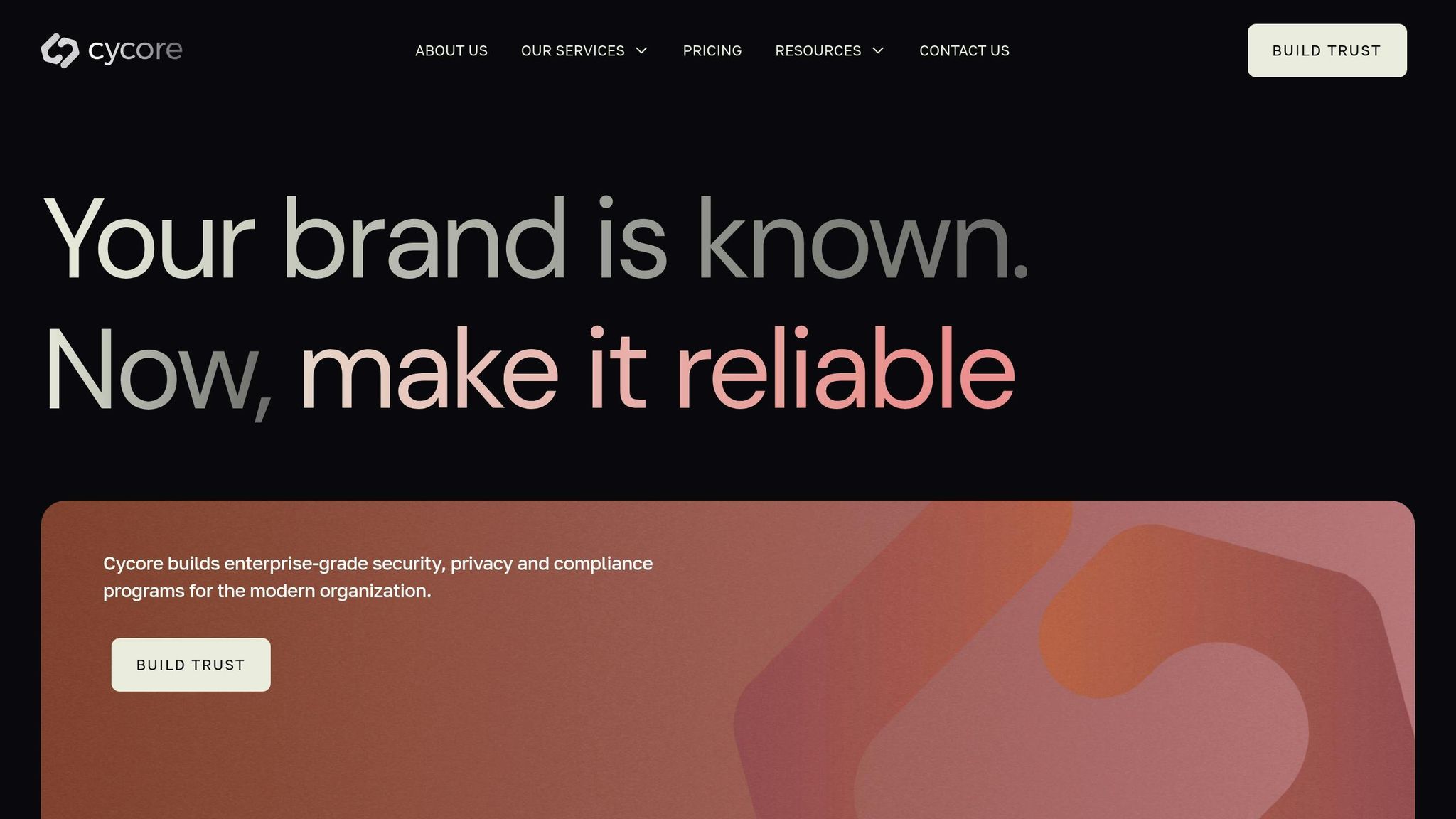
Primary Function
Cycore Secure provides top-tier cybersecurity, privacy, and compliance solutions tailored for startups and small businesses. With 43% of small businesses falling victim to cyberattacks - each costing an average of $188,000 per incident - this platform addresses a critical need in the market. Their services, including Virtual CISO (vCISO) and Virtual Data Protection Officer (vDPO), allow startups to access expert-level security guidance without the expense of hiring full-time specialists. This is especially crucial given that 60% of small businesses shut down within six months of a cyberattack.
Key Features and Benefits
Cycore Secure focuses on simplifying security and compliance for growing businesses through a range of services:
- vCISO Services: Offers strategic security leadership, helping startups build and maintain strong cybersecurity programs.
- vDPO Services: Manages data protection compliance, with a particular focus on GDPR requirements.
The platform also specializes in GRC Tool Administration, managing tools like Drata, Vanta, Secureframe, and Thoropass to streamline compliance processes. This approach ensures continuous monitoring, moving beyond the limitations of annual audits.
Another standout feature is audit support, where Cycore Secure assists with compliance frameworks such as SOC 2, HIPAA, and ISO 27001. David Kim, Co-Founder of Monterra, praised their expertise:
"Cycore provided exemplary service in managing our compliance needs. Their team's experience is evident with how quickly they were able to solve our challenges".
Additionally, Cycore Secure supports vendor management, helping businesses evaluate third-party risks. They also offer security training programs, ensuring teams understand their responsibilities in maintaining a secure environment.
Compliance and Regulatory Support
Cycore Secure ensures startups meet critical regulatory standards, including SOC 2, HIPAA, ISO 27001, and GDPR. Their proactive approach combines continuous monitoring with regular assessments, giving startups the tools to build trust with clients and investors while staying compliant as they scale.
Nils Schneider, CEO & Co-Founder of Instantly, shared his positive experience:
"With Cycore, there's no need for my team and I to worry about security and privacy. Cycore keeps us up to date on our compliance program and notifies us ahead of time if they need something from us".
Price (USD/month)
Cycore Secure’s pricing ranges from $4,000 to $10,000 per month. Their Start-up tier is designed for early-stage companies, offering a cost-effective bundle that includes:
- vCISO services
- Basic GRC administration
- Initial compliance assessment
- Monthly reporting
- Security training
- Vendor management
For businesses with tighter budgets, Cycore Secure provides flexibility to customize pricing. This approach ensures startups can access enterprise-level security without breaking the bank, aligning with the affordability expectations of a sub-$100/month toolkit when cost adjustments are negotiated.
2. Bitdefender GravityZone Business Security
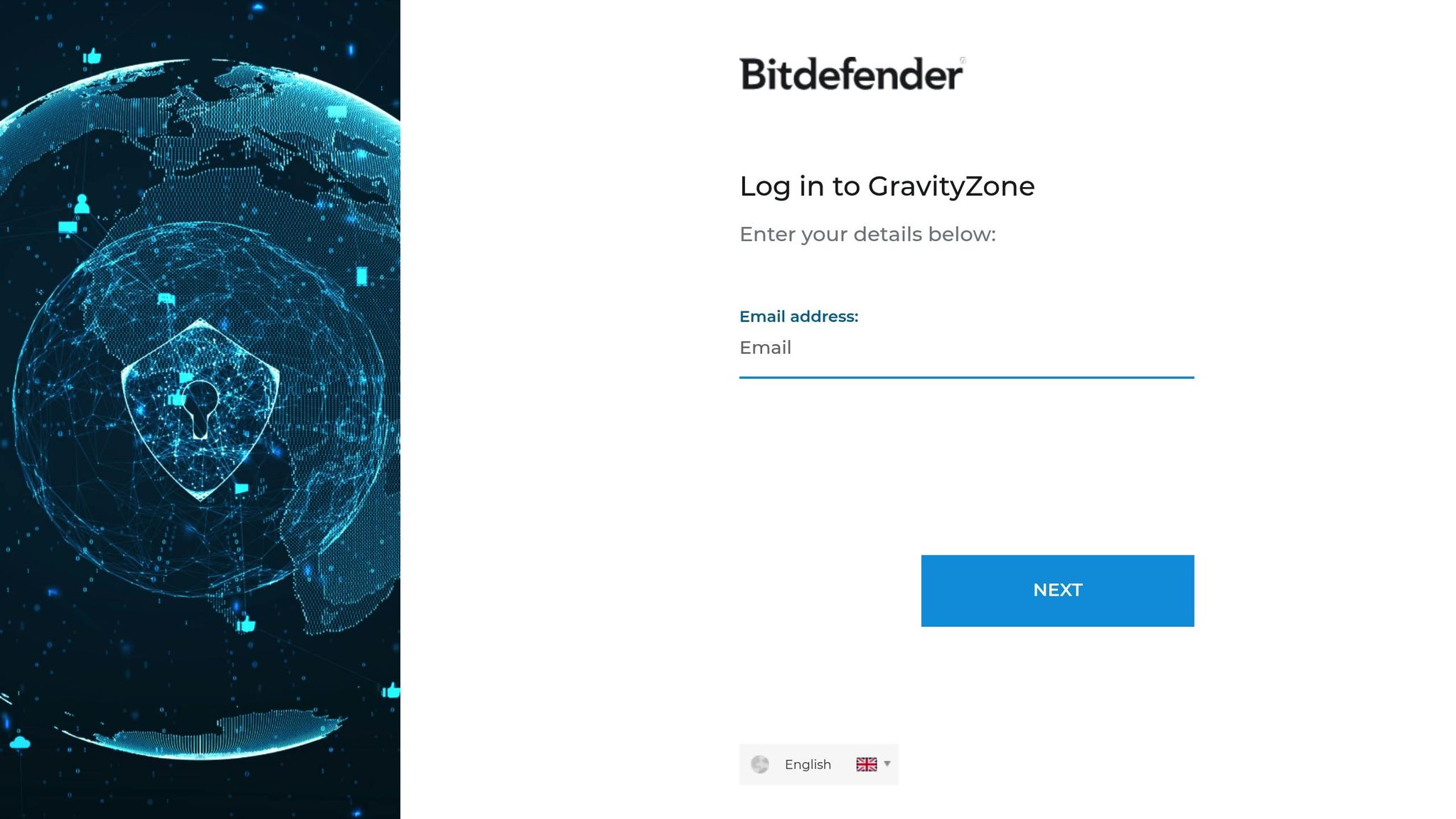
Primary Function
Bitdefender GravityZone Business Security is designed to provide endpoint protection tailored for startups and expanding businesses. It safeguards endpoints and servers through a single, unified console. By addressing critical cybersecurity threats like ransomware, phishing, zero-day exploits, and targeted attacks, it simplifies endpoint protection for companies with limited IT resources. Let’s dive into how its advanced features help tackle these challenges effectively.
Key Features and Benefits
GravityZone uses machine learning and continuous monitoring to detect and block threats - such as ransomware - in real time. This means files can be restored quickly if needed. Impressively, Bitdefender achieved a 100% detection rate of attack steps in the 2023 MITRE Engenuity ATT&CK Evaluations.
Mike Gower-Fox, ICT Infrastructure Engineer at Coleg Gwen, shared his experience:
"Since we deployed GravityZone six years ago, we have not experienced any ransomware attacks...It instilled confidence that GravityZone stopped such an insidious threat before it did any serious damage."
Additional features include Network Attack Defense, which protects against brute force attacks and network exploits, and a Risk Management module that pinpoints risky user behavior and system misconfigurations. These tools significantly reduce security workload by 70%, cut incidents by 85%, and halve response times.
Compliance and Regulatory Support
The GravityZone Compliance Manager simplifies meeting regulatory standards by offering built-in support for frameworks like GDPR and SOC 2. Bitdefender itself is SOC 2 Type 2 certified, adhering to the five Trust Principles: Security, Availability, Confidentiality, Processing Integrity, and Privacy. Features like Full Disk Encryption and Integrity Monitoring ensure data remains confidential and protected from unauthorized changes.
Alin Paunescu, Chief Information Security Officer at Patria Bank, highlighted the benefits:
"GravityZone Compliance Manager performed well for us during early access. The continuous monitoring and assessment feature reduced our reliance on manual scans, saving valuable time. Because it's integrated into our existing security stack, we've avoided the additional cost and complexity of using external tools. It has simplified our operations by eliminating the need for multiple point solutions."
With these capabilities and flexible pricing, GravityZone is an excellent option for startups looking to strengthen their security without adding complexity.
Price (USD/month)
Bitdefender GravityZone Business Security offers flexible per-device pricing, a free trial, and scalable options as your business grows. Its value has been widely recognized: Bitdefender was named a Leader in the IDC MarketScape: Worldwide Modern Endpoint Security for Small Businesses 2024 Vendor Assessment report and received the AV-TEST Award 2023 for Best Protection and Best Performance in the business users category.
3. Drata
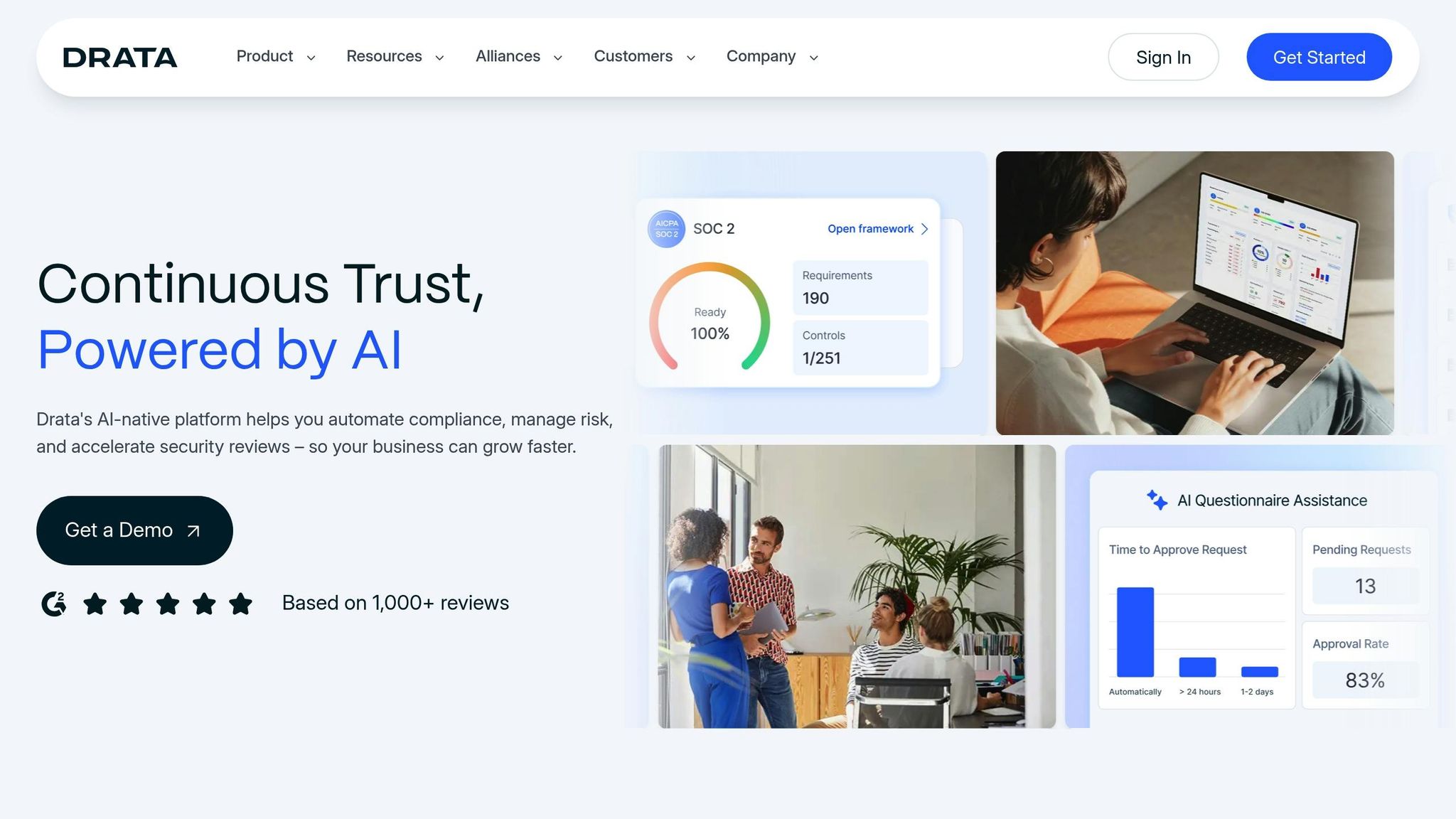
Primary Function
Drata takes the hassle out of compliance by automating workflows and ensuring you're always audit-ready. By building on existing endpoint protection and vendor-managed security tools, Drata continuously checks the effectiveness of your controls, reducing the need for manual oversight.
Key Features and Benefits
Drata simplifies compliance by automating evidence collection to meet industry-specific standards. It offers tools for monitoring security controls, creating policies, and conducting risk assessments, particularly for SOC 2 audits. With integrations spanning over 200 applications - including 45 AWS services - the platform ensures continuous control monitoring.
One of Drata's standout qualities is its user-friendly design, making it accessible even for those new to governance, risk, and compliance. Users also highlight the platform's dedicated account managers and tailored support, which has earned Drata a near-perfect 9.9/10 rating for customer service.
Compliance and Regulatory Support
Drata's automated approach makes it easier to comply with major regulatory frameworks like SOC 2, ISO 27001, GDPR, HIPAA, and PCI DSS. Its built-in control mapping outlines necessary activities and evidence, while also identifying shared controls - such as the 80% overlap between ISO 27001 and SOC 2 criteria - helping organizations avoid redundant work.
The platform also handles operational tasks like user access reviews, tracking policy acceptance, scanning code, and responding to due diligence questionnaires. This allows businesses to provide prospects and customers with a real-time view of their compliance status.
Drata CEO Adam Markowitz explains the platform's appeal:
"Companies come to Drata because their potential customers require them to show proof of security posture before closing a deal, and the proof comes in the form of a compliance certification or attestation."
Price (USD/month)
Drata offers a "Drata for Startups Program", providing special benefits for startups at any funding stage during their first contract. While specific pricing for startups isn't disclosed, the standard pricing includes a platform fee of $25,000 per year for organizations with 100 employees. Individual compliance frameworks like SOC 2, GDPR, ISO 27001, HIPAA, and PCI DSS are priced at $7,500 annually.
For comparison, traditional SOC 2 audits for small to midsize companies typically range between $7,500 and $15,000 for Type 1 audits and $12,000 to $20,000 for Type 2 audits.
4. Vanta
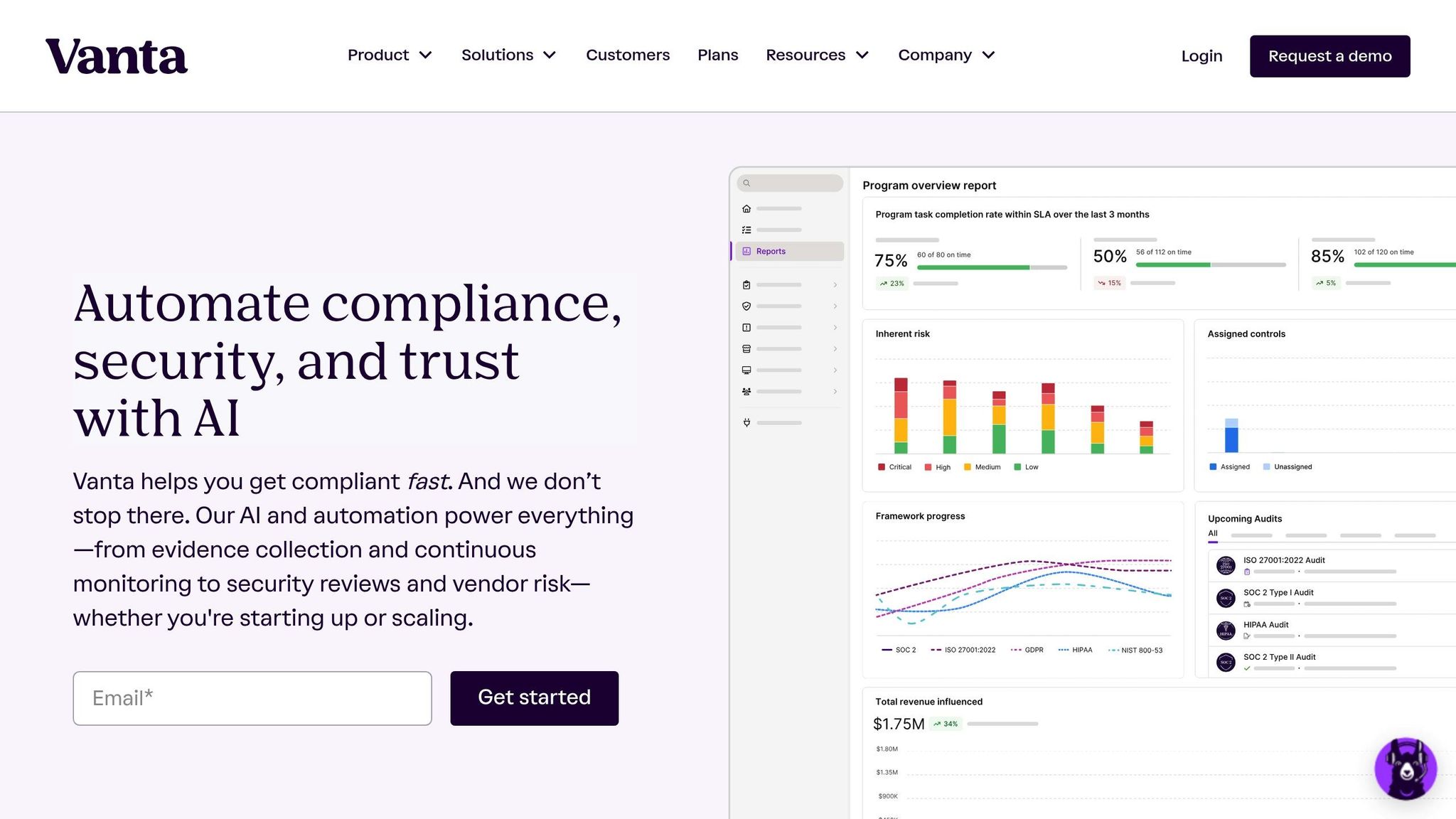
Primary Function
Vanta is a compliance automation platform designed to help startups establish a solid security foundation and achieve certifications like SOC 2 and ISO 27001. By automating up to 90% of the evidence collection process, it transforms months of manual work into an efficient, continuous monitoring system. The platform integrates seamlessly with your existing tools, ensuring your security systems are always monitored and audit-ready. This proactive approach allows startups to focus on growth while staying on top of compliance requirements.
Key Features and Benefits
Vanta simplifies compliance by automating tasks across several critical areas. For vulnerability management, it consolidates scanner results and sets service levels to address key risks. Employee security workflows are also streamlined, including automated security training, onboarding and offboarding processes, and regular user access reviews. Additionally, the platform tracks vendor security by automatically monitoring third-party risks. With pre-built templates and a guided policy builder, startups can quickly implement standard security policies. A standout feature is Vanta's personalized compliance roadmap, which walks users through every milestone.
Cyrus Shaoul, Co-founder and CEO of Leela AI, highlights the platform’s efficiency:
"Vanta gives us a really clear workflow on what needs to be done, who's in charge of doing it, if it's been done yet, and how many security tasks are sitting there. It's helped me and my co-founder save lots of time."
Compliance and Regulatory Support
Vanta supports over 30 compliance frameworks and standards, including SOC 2, ISO 27001, HIPAA, NIST, GDPR, and PCI DSS. It provides detailed control sets, document templates, and policy guidelines tailored to each standard. The platform’s continuous monitoring ensures startups remain audit-ready by consistently assessing risks, implementing security measures, and demonstrating compliance year-round. This approach is particularly valuable for startups aiming to meet regulatory requirements without overextending their resources. So far, more than 8,000 organizations, including over 1,000 Y Combinator–backed startups, have used Vanta to scale their businesses efficiently .
Price (USD/month)
Vanta’s pricing reflects its robust feature set. The Core Package is priced at $958/month for teams of 1–20 employees, while the Essential Plan costs around $833/month. Larger organizations can opt for Pro/Enterprise plans, which range from $2,500 to $6,667/month, depending on the scope of services .
In July 2024, Vanta secured $150 million in Series C funding, further cementing its position as a leader in compliance automation. Startups often find that the investment pays off quickly through faster deal cycles and reduced manual work. As Everett Berry from Clay shares:
"Vanta has saved us hundreds of hours and well over six figures in potential lost deals or added headcount. Vanta keeps security and compliance manageable, even for a fast-growing team like ours. There's no better way to operationalize trust."
sbb-itb-ec1727d
5. Tenable.io
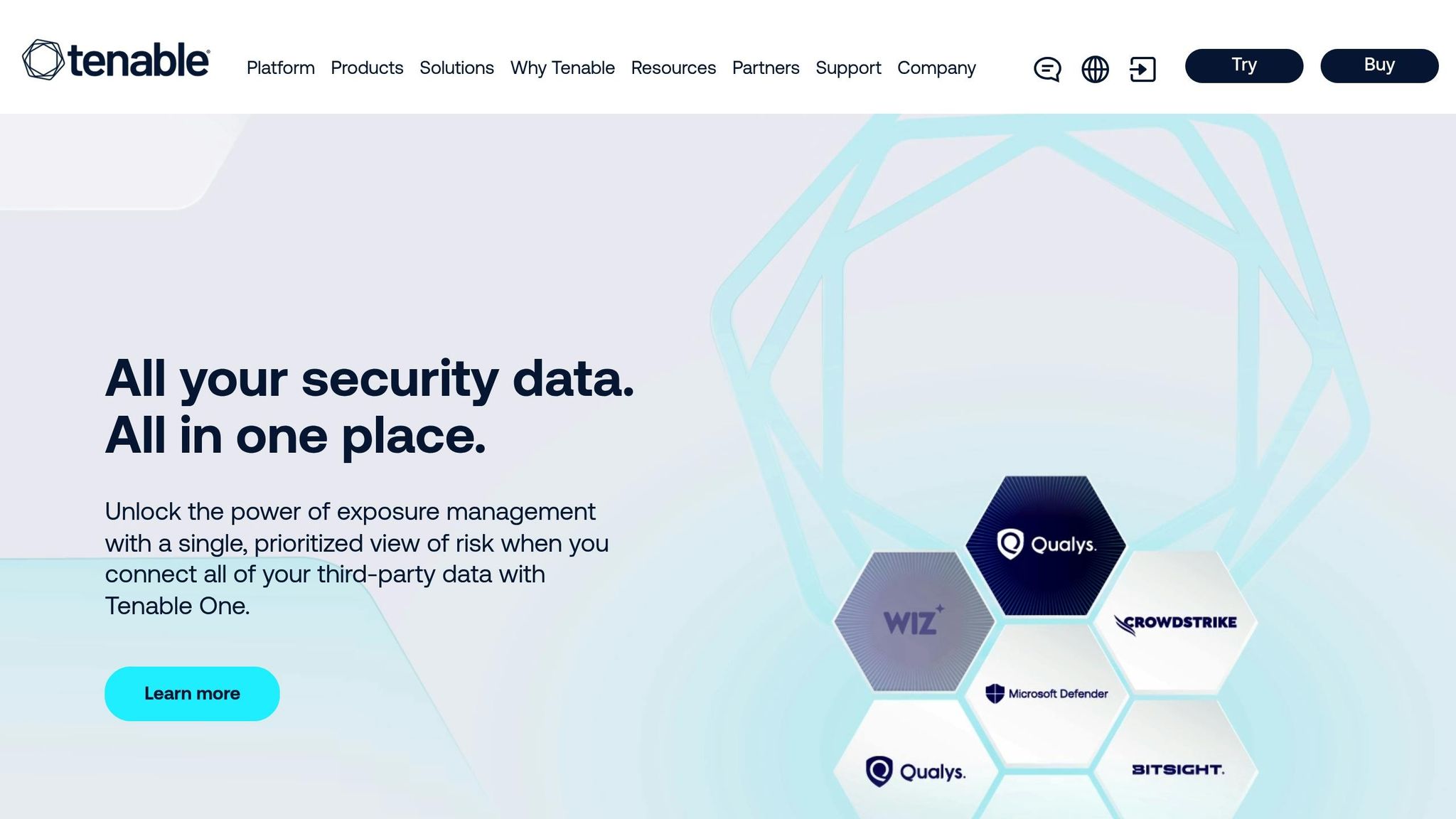
Primary Function
For startups aiming to tackle vulnerability management head-on, Tenable.io provides precise asset insights and a focused approach to risk. This platform, powered by Tenable Nessus technology and managed in the cloud, offers continuous asset discovery and prioritizes vulnerabilities that matter most. It’s designed to uncover hidden risks across your network, ensuring no asset or vulnerability goes unnoticed.
This targeted prioritization is especially helpful for startups with limited resources, enabling them to zero in on the most critical threats.
Chris K., an Infosec Engineer, highlights the platform’s usability:
"Tenable.io is a package that integrates the Nessus scanner with a web-based dashboard providing clear asset and vulnerability insights. Having full access to the data in a dashboard makes searching it easy."
Key Features and Benefits
Tenable.io addresses key security challenges that startups face, offering tools to maintain visibility and control over their infrastructure. Some standout features include:
- Comprehensive asset discovery and inventory: It identifies all devices and systems, including containers and web applications, even in cloud-native environments.
- Threat-focused prioritization: Instead of overwhelming teams with endless vulnerabilities, the platform uses real-time threat intelligence to highlight the most pressing risks.
- Integration with development workflows: By working seamlessly with CI/CD pipelines and ITSM tools, Tenable.io ensures that security doesn’t slow down fast-paced development cycles.
Sumeet Khokhani, Chief Information Security Officer at Intas Pharmaceuticals Ltd., shares his experience:
"We found the solution in Tenable which gives us much needed actionable insight into our entire infrastructure's security risk".
Compliance and Regulatory Support
Tenable.io also simplifies compliance for startups navigating regulatory requirements. Its framework supports several key standards, including GDPR, HIPAA, ISO 27001, PCI DSS, NIST CSF, and SOC 2. The platform translates these guidelines into actionable policies, making it easier for startups to stay compliant.
For cloud-focused startups, Tenable Cloud Security extends this support by continuously scanning configurations and resources across multiple cloud environments. It audits against industry benchmarks like CIS, AWS Well Architected, and others, while also offering custom compliance checks.
With detailed reporting capabilities, the platform simplifies audit preparation by generating reports that cover asset inventories, misconfigurations, and network setups. These reports meet the documentation needs of both internal reviews and external audits, helping identify and address compliance gaps before they escalate.
Larry Viviano, Director of Information Security at IntelyCare, emphasizes the efficiency gains:
"Using [Tenable Cloud Security] automation allowed us to eliminate exhaustive manual processes and perform in minutes what would have taken two or three security people months to accomplish."
Price (USD/month)
Tenable.io starts at $2,275 per year for up to 65 assets, which breaks down to about $189 per month. While this exceeds the $100/month budget considered in this article, it’s a strong option for startups with larger asset inventories or those with additional funding for security tools.
For smaller teams, the advanced features might seem like a stretch financially, but they could be worth considering as a longer-term investment as the business grows. Startups operating on tighter budgets may need to revisit this option once they scale and their security needs expand. Despite the higher cost, Tenable.io offers a robust set of tools for startups ready to invest in serious vulnerability management.
6. 1Password Teams
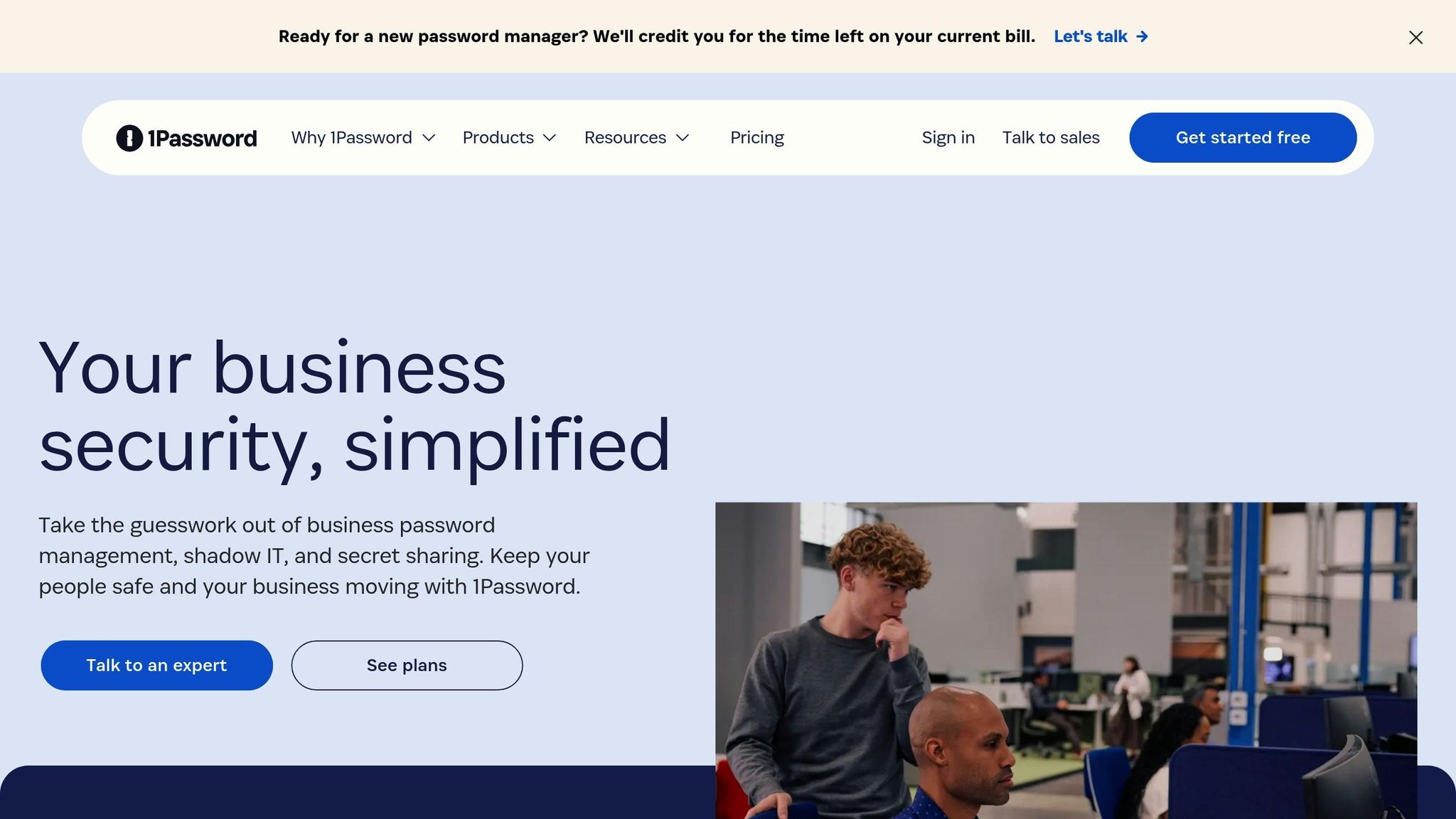
Primary Function
1Password Teams is a password manager designed to help startups securely create, store, and share credentials. It eliminates the risky habit of sharing passwords through spreadsheets, sticky notes, or messaging apps. Even though 91% of workers recognize the dangers of reusing passwords, 66% still do it. 1Password Teams steps in to address this issue by offering a structured way to enforce strong security practices. It simplifies the process of generating strong, unique passwords and gives administrators the tools to manage access to sensitive information effectively.
"Since we don't have a network administrator or a real IT person, 1Password allows me to focus on the other aspects of our business without having to worry about our security." – Michael Berick, Co-Founder of Maptote
These features create a solid foundation for managing credentials efficiently while enhancing overall security.
Key Features and Benefits
1Password Teams tackles common security problems by improving password health and simplifying credential management. Its Watchtower feature monitors password strength and flags weak or compromised passwords. Autosave and autofill functions reduce time spent managing credentials - an important feature, considering that nearly 50% of data breaches in 2023 stemmed from weak, stolen, or reused passwords.
The platform also streamlines employee onboarding and offboarding by making it easy to manage access to shared vaults. Beyond passwords, it protects other sensitive information like multi-factor authentication codes, SSH keys, documents, and credit card details.
With zero-knowledge architecture and end-to-end encryption, 1Password ensures that no one, not even the company itself, can access your vault contents. This is especially important, given that 61% of employees have poor password habits and 34% use unapproved tools.
"1Password helps us maintain our security culture as we scale and grow. It's important to have one tool across the business that we can rely on for everyone to safely store and share credentials." – Jan Van der Kolk, IT Manager at Dovetail
Price (USD/month)
1Password Teams offers two affordable pricing plans. The Teams Starter Pack costs $19.95 per month for up to 10 users when billed annually - breaking down to less than $2 per user each month. For teams needing more advanced features, the Business plan is available at $7.99 per user per month when billed annually. Even with 10 users, the total cost stays under $100 per month.
Compliance and Regulatory Support
1Password Teams aligns with major compliance frameworks, including SOC 2 and GDPR. The platform is SOC 2 Type 2 certified, adhering to strict standards for data confidentiality, integrity, and availability. Key compliance tools include granular access controls, multi-factor authentication, and detailed audit trails to monitor user activity. These features not only strengthen internal security but also help meet compliance requirements.
The Extended Access Management (XAM) module offers even more control over user access to company resources. It includes device health monitoring and logs details like device properties, health checks, and credential access activities. This level of transparency is especially useful for meeting privacy regulations like GDPR.
"The ability to track who accesses what, where, and how is a big deal, especially in reporting and auditing." – Lee Jon Scramstad, Systems Architect at Synex
"We believe strongly that your data is yours and we don't want to know anything about it. This is one of the fundamental beliefs 1Password was built upon. We don't use it, we don't share it, and we don't sell it. You're our customer, not our product." – Dave Teare, Founder of 1Password
7. Tugboat Logic
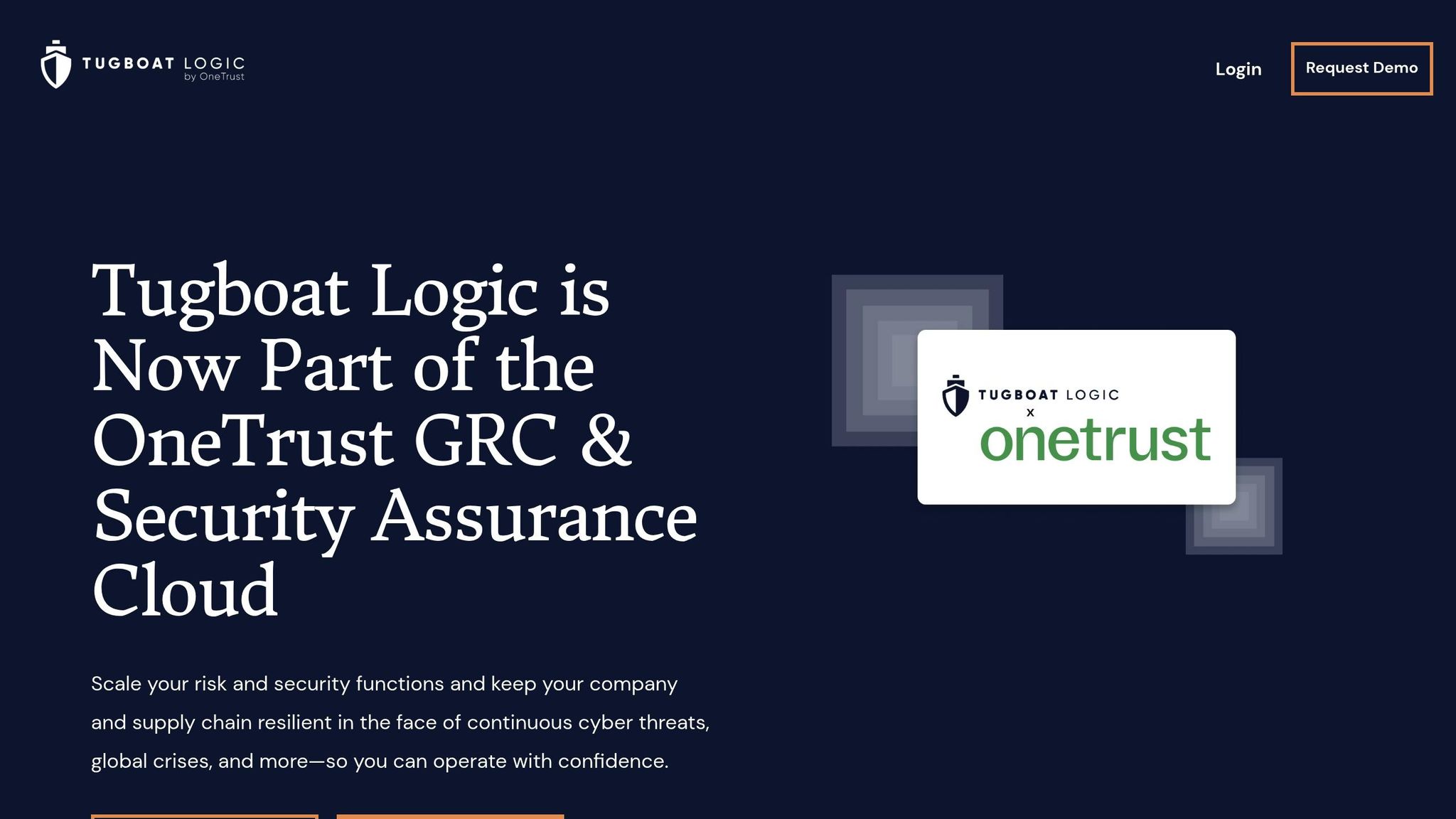
Primary Function
Tugboat Logic, now part of OneTrust, is a platform designed to simplify security assurance and compliance for startups, especially those without dedicated compliance teams. It automates processes like control assessment, compliance management, and incident response, offering tools that streamline evidence collection and provide structured frameworks. For startups needing to prove their security credentials, Tugboat Logic supports compliance with frameworks such as SOC 2, ISO 27001, HIPAA, and PCI DSS. By using pre-built templates and automated workflows, small teams can establish strong security practices and achieve certifications more efficiently.
"Tugboat Logic helped us establish foundational security practices and prepare for SOC 2 certification without requiring dedicated compliance personnel." – Startup Founder
Key Features and Benefits
Tugboat Logic reduces the administrative workload of compliance by about 40%, saving startups time and effort through guided workflows and pre-built frameworks. Its features include third-party risk management, audit management, incident management, and vendor risk management, all supported by automated tools for tasks like evidence tracking and questionnaires. Guided workflows are particularly helpful for startups pursuing their first SOC 2 or ISO certification, providing step-by-step guidance through complex requirements. The platform also integrates seamlessly with existing tools and offers dashboards with real-time reporting, giving teams clear insights into their compliance progress. Additionally, its risk assessment functionality helps categorize and address risks across IT assets, controls, and third-party vendors.
Price (USD/month)
Tugboat Logic’s pricing is tailored to startups, offering two affordable plans. The Essentials plan costs $41.67 per month (billed annually at $500) and supports up to 50 employees and one business unit. It includes features like security posture management, automated evidence collection, a content library, and a scoping wizard. The Startup plan, priced at $250 per month (or $3,000 annually), builds on the Essentials plan by adding support for one compliance framework (SOC 2 or ISO 27001), risk assessment tools, audit collaboration, policy attestation, customer portal access, vendor risk management, and expert platform support.
"Tugboat Logic provides an entry point for organizations beginning their security journey. Our new pricing ensures businesses of all sizes will be able to unlock enterprise-grade compliance automation capabilities at startup pricing." – Ray Kruck, Founder and CEO, Tugboat Logic
Compliance and Regulatory Support
Tugboat Logic supports a range of compliance frameworks, including SOC 2, ISO 27001, CMMC, HIPAA, and PCI DSS, helping startups meet various regulatory requirements. The platform enables businesses to prepare for audits faster and more cost-effectively, cutting preparation time in half and allowing security questionnaires to be completed in minutes. For healthcare startups, Tugboat Logic automates HIPAA compliance by managing evidence collection, enforcing policies, and conducting risk assessments to ensure patient data is protected. Fintech companies also benefit from its automated tools, which help validate security measures for banking partners and speed up compliance timelines. With features like auditor collaboration and automated evidence tracking, Tugboat Logic simplifies the certification process and ensures ongoing compliance. By automating these processes, the platform strengthens startups' security practices while keeping costs manageable.
"Tugboat Logic simplifies security assurance and certification automation to help growing companies easily demonstrate why they can be trusted and give a level of assurance about their security and compliance posture." – Kabir Barday, OneTrust CEO
Tool Comparison Chart
When it comes to choosing the right security tools for your business, balancing cost, features, and compliance is critical. Below is a comparison of seven essential security tools, all priced under $100 per month, designed to help startups build a strong security foundation.
| Tool | Primary Function | Monthly Price (USD) | Key Features | Compliance Support | Pros | Cons |
|---|---|---|---|---|---|---|
| Cycore Secure | Outsourced security, privacy & compliance services | Custom pricing | vCISO services, vDPO services, GRC tool administration, compliance management | SOC2, HIPAA, ISO27001, GDPR | Expert-led compliance guidance, scalable solutions, ongoing monitoring | Pricing not publicly available |
| Bitdefender GravityZone Business Security | Endpoint protection and threat detection | Starting at $30/month | AI-driven malware protection, web filtering, device control, centralized management | Basic compliance reporting | Strong malware detection, easy deployment, scales with business growth | Limited advanced compliance features |
| Drata | Automated compliance monitoring | Starting at $500/month | Continuous control monitoring, evidence collection, audit preparation | SOC2, ISO27001, HIPAA, PCI DSS | Automated evidence collection | Higher cost for smaller teams |
| Vanta | Security and compliance automation | Starting at $400/month | Real-time monitoring, automated questionnaires, audit support | SOC2, ISO27001, HIPAA, GDPR | User-friendly interface, comprehensive framework support | Can be expensive for early-stage startups |
| Tenable.io | Vulnerability management | Starting at $40/month per asset | Continuous vulnerability scanning, risk prioritization, asset discovery | Supports various compliance frameworks | Comprehensive, cloud-native vulnerability detection | Pricing scales with asset count |
| 1Password Teams | Password and secrets management | $8/month per user | Secure password sharing, two-factor authentication, admin controls | Helps meet access control requirements | Easy to use, strong security features, affordable | Limited to password management scope |
| Tugboat Logic | Compliance automation and risk management | Starting at $41.67/month | Automated evidence collection, risk assessments, audit collaboration | SOC2, ISO27001, HIPAA, PCI DSS, CMMC | Startup-friendly pricing | Limited to compliance and risk management |
Each tool brings something valuable to the table, helping startups address the growing challenges of cybersecurity while staying within budget. For instance, 1Password Teams stands out as a low-cost option for secure password management, while Cycore Secure provides comprehensive security management tailored to your needs, including virtual Chief Information Security Officer (vCISO) and Data Protection Officer (vDPO) services.
The pricing spectrum spans from $8 per user per month to $500 monthly, with tools like Tugboat Logic offering an affordable entry point at $41.67. Given that vendor vulnerabilities account for over 50% of breaches, tools like Tugboat Logic and Drata are essential for managing third-party risks effectively.
Budget-friendly options like Bitdefender GravityZone focus on endpoint protection, while higher-tier solutions such as Drata and Vanta automate compliance monitoring and audit preparation. The importance of these tools is underscored by data showing that companies leveraging automated cybersecurity solutions reduce breach costs by 80% compared to their peers. Considering that the financial impact of a cyberattack can be up to 10 times higher than the cost of prevention, investing in the right tools is not just about compliance - it’s a smart business move.
Next, we’ll dive into how to integrate these tools into a cohesive security stack that aligns with your business needs and budget.
How to Build Your Security Stack
Building your security stack step by step can help you establish a solid security foundation without overwhelming your team. According to a 2016 RAND study, startups should dedicate 10–15% of their IT budget to cybersecurity investments.
Phase 1: Foundation (Weeks 1–4)
Start by assessing your current security setup. Identify any existing controls and pinpoint gaps that need immediate attention. Focus on affordable yet impactful solutions, such as password management, multi-factor authentication (MFA), and basic endpoint protection.
For example, you can use 1Password Teams at $8 per user per month for secure password sharing and MFA. Pair it with Bitdefender GravityZone Business Security, which starts at $30 per month, to cover endpoint protection. Once these basic measures are in place, you’ll be ready to tackle compliance requirements in the next phase.
Phase 2: Compliance Preparation (Weeks 5–12)
Next, work on aligning your security practices with compliance standards like SOC 2. Define security policies and enforce least privilege across all systems.
Consider using tools like Tugboat Logic, which offers automated evidence collection and risk assessments for $41.67 per month. If your company is scaling rapidly, Cycore Secure provides tailored vCISO and vDPO services with pricing that adjusts to your growth. Both options can help streamline compliance efforts while keeping costs manageable.
Phase 3: Advanced Protection (Months 4–6)
In this phase, focus on enhancing your stack with tools for vulnerability management and continuous monitoring. Tenable.io, starting at $40 per asset, provides continuous vulnerability scanning and risk prioritization. Also, ensure data encryption and secure API endpoints are in place.
Shift your focus to identity-based security over traditional perimeter defenses. Implement automated Identity and Access Management (IAM) lockdowns and configure pre-set security alerts to minimize manual intervention. This approach aligns with modern Zero Trust principles while maintaining agility.
Integration Best Practices
Once you’ve deployed individual tools, the next step is integrating them into your existing systems. Plan carefully - evaluate security at every project phase, automate alert correlation using API-enabled dashboards, and set up automated response playbooks for quick incident containment.
Maintenance and Optimization
Ongoing maintenance is key to keeping your security foundation strong. Update your tools regularly, schedule monthly scans, and conduct annual penetration tests to identify and fix vulnerabilities. With non-compliance costs averaging $14.82 million globally, consistent upkeep is a necessary investment.
Use reports from these tests to create prioritized remediation plans, starting with critical issues. Track progress and validate fixes through retesting to ensure vulnerabilities are resolved.
"At some point, most businesses will need to meet compliance requirements, either to continue operating or achieve new business milestones. For instance, without compliance, they may be unable to work with certain clients." – Ryan Sutton, President and CEO, Kinetix
Team Training and Culture
Employee training is just as important as the tools you deploy. Conduct mandatory onboarding sessions and quarterly phishing simulations to teach employees how to recognize threats and follow secure practices. Since 66% of cybersecurity vulnerabilities result from everyday workplace habits, regular training is essential.
Distribute clear security policies that outline expected behaviors and reporting procedures. Keep in mind that as your business grows, your security needs will evolve, requiring ongoing training and team involvement.
Budget Optimization
Opt for scalable, cloud-based subscription services that allow for incremental automation. Begin with tools for automated threat monitoring and vulnerability scanning, and gradually introduce more advanced processes as your team gains confidence with the technology. This gradual approach ensures smoother adoption and helps build in-house expertise to support long-term security goals.
Conclusion
Creating a security stack for under $100 a month isn't just about cutting costs - it's about laying the groundwork for growth and compliance right from the start.
Consider this: 43% of startups identify security and compliance as barriers to launching their business. This highlights the importance of using affordable tools to address these challenges early.
Investing in security pays off in more ways than one. A significant number of small businesses shut down after a cyberattack, and 94% of organizations report losing customers due to mishandled data. These stats make it clear - proactive security measures are not optional; they’re essential for survival and trust.
Starting compliance efforts early also sets the stage for future success. Whether you're aiming for SOC 2 certification to secure enterprise clients or ensuring GDPR compliance to enter global markets, these tools help you meet the necessary standards. Viewing compliance as a long-term investment rather than a short-term expense can streamline sales processes and protect your reputation.
A phased approach works best - begin with basics like password management and endpoint protection, then move on to compliance automation and vulnerability scanning as your needs grow. This step-by-step method keeps things manageable while maintaining the level of security your customers and investors expect.
Looking ahead, cybersecurity spending is projected to grow by 15% in 2025, reaching $212 billion globally. By integrating affordable tools now, you're not only protecting your startup but also setting it up to scale securely without massive cost spikes later. These investments build the trust and infrastructure needed to fuel growth and open up new opportunities.
FAQs
How can startups integrate security tools into their workflows without causing disruptions?
Startups can incorporate security tools effectively by embracing DevSecOps practices. This approach weaves security into the development process, using methods like automated testing and managing infrastructure as code. These strategies help cut down on manual tasks and make operations more efficient.
When choosing tools, look for ones that fit seamlessly with your current setup - whether that’s cloud platforms or CI/CD pipelines. Prioritize solutions that simplify and support your workflows, allowing your team to stay productive while strengthening security measures.
What should startups consider when selecting a compliance automation tool?
When picking a compliance automation tool, startups need to zero in on their unique regulatory requirements - whether it's SOC 2 or GDPR compliance. It's equally important to ensure the tool can grow alongside your business. Opt for solutions that streamline processes through automation, cut down on manual tasks, and work smoothly with your current systems.
Also, give preference to tools with a solid history of success, dependable customer support, and the flexibility to keep up with changing compliance standards. The right choice can save you time, lower risks, and help build trust with both customers and partners.
How can affordable security tools under $100/month help startups build trust with investors and customers?
Investing in security tools that cost less than $100 per month is a smart move for startups looking to show their dedication to cybersecurity and compliance. These tools help safeguard sensitive data, fend off potential threats, and meet compliance standards like SOC 2 or GDPR - all without putting a strain on the budget.
By taking a proactive approach to risk management and showcasing solid security practices, startups can build trust with both investors and customers. This not only minimizes the chances of expensive breaches but also boosts credibility and strengthens confidence in the company’s ability to handle data securely and responsibly.


